Agriculture & Environment
Makerere Hosts Climate Adaptation workshop: Calls for Action to Mitigate Climate Change Threats to Agricultural Sector
Published
7 months agoon
By
Jane Anyango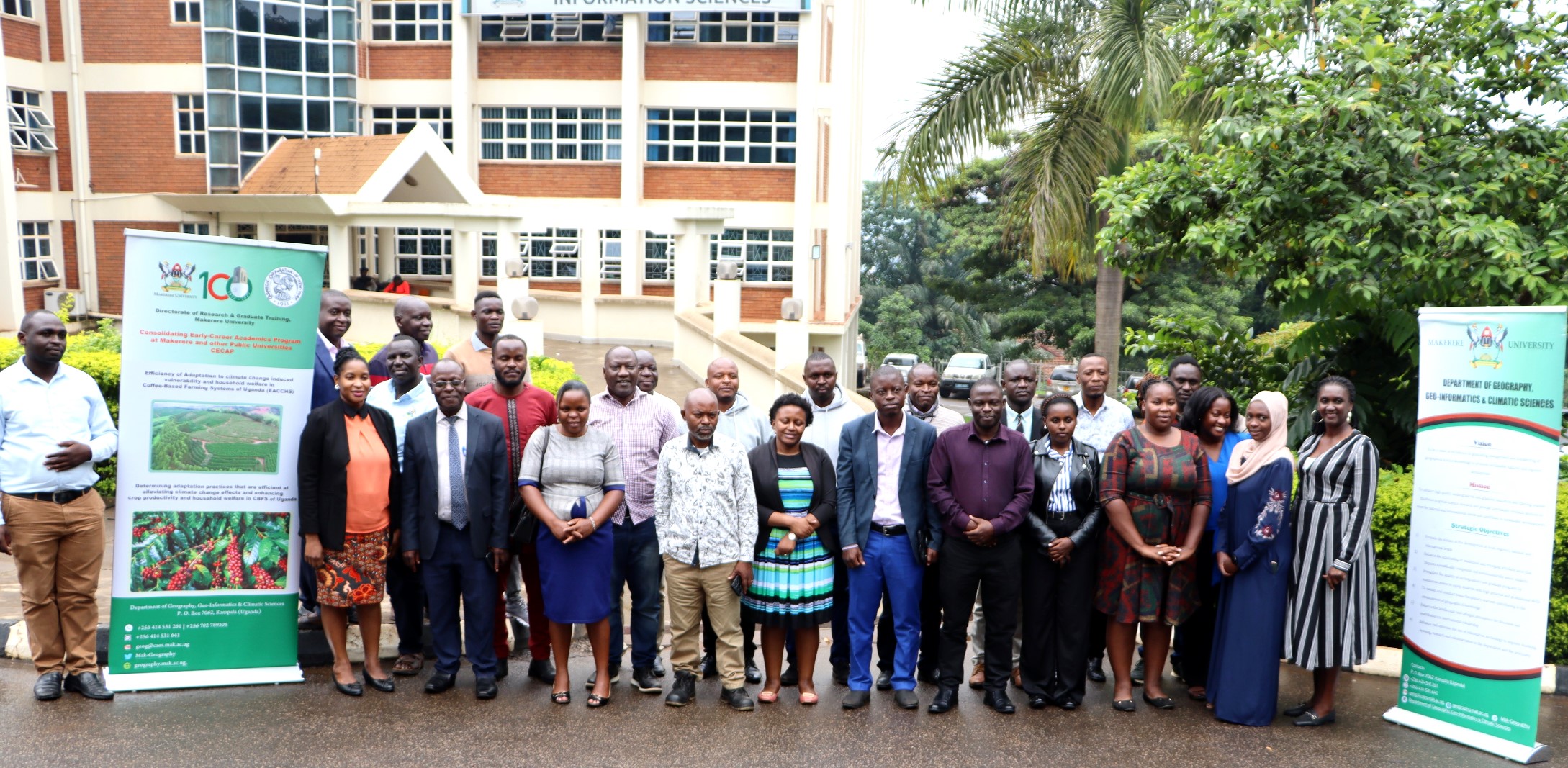
Kampala, 19th December 2024: The Department of Geography, Geo-informatics, and Climatic Sciences at Makerere University, in collaboration with the Department of Geography at Kyambogo University, held a workshop to disseminate research findings from three climate adaptation and mitigation projects funded by the Regional Universities Forum for Capacity Building in Agriculture (RUFORUM), RAINCA, WASCAL, Akademiya2063, and the Carnegie Corporation of New York under the CECAP Program.
The workshop, which took place on 19th December 2024, at the GIS Lab of Makerere University, focused on three key projects: Land Use Management & Artificial Intelligence for Crop Production, Land Use & Carbon Stocks, and Adaptation to Climate Change Induced Vulnerability. The goal of the workshop was to engage in-country stakeholders on interpreting the research findings and strategically applying them to mitigate the impact of climate change on Uganda’s agricultural sector across various agro-ecosystems and agro-ecological zones. Recommendations were drawn up in the form of policy briefs to guide climate adaptation efforts.
While officially opening the workshop the Dean of the School of Forestry, Environmental, and Geographical Sciences (SFEGS), Dr. Revocatus Twinomuhangi, extended a warm welcome to participants at the workshop, where he also delivered both the opening and closing remarks. In his address, Dr. Twinomuhangi commended the study’s Principal Investigator (PI) for successfully implementing the project and enhancing Makerere University‘s reputation. He expressed gratitude to the project’s partners for their collaborative efforts, as well as to the department for fostering an enabling environment for the research. Additionally, Dr. Twinomuhangi acknowledged the support of funders such as DGRT, whose contributions made the project possible.
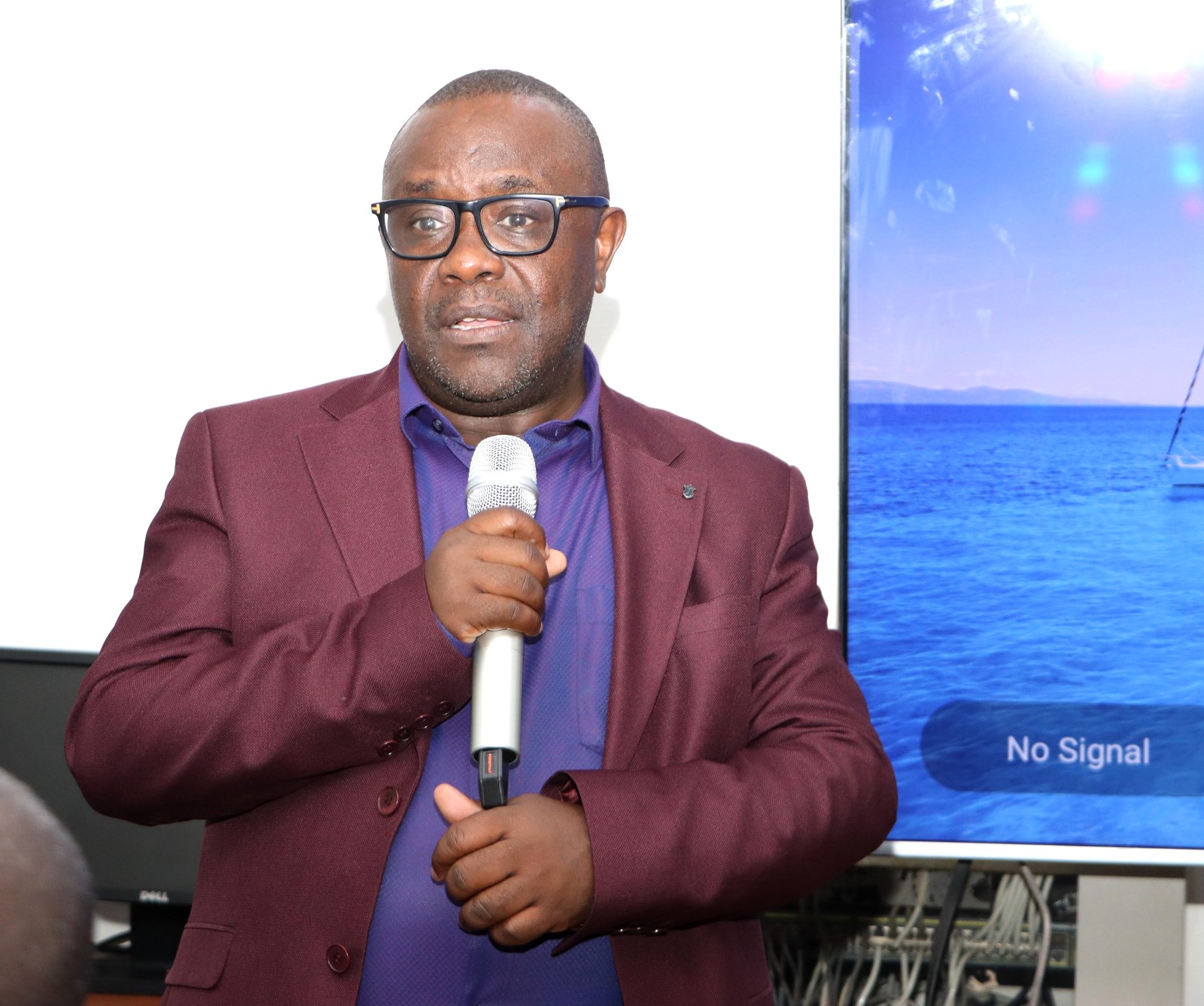
The Dean thanked all the participants for their attendance, emphasizing the importance of continuing the work initiated by the project. He expressed optimism that the research would lead to publications in high-impact journals and be effectively packaged for policy and decision-making. As the workshop concluded, Dr. Twinomuhangi offered his well wishes for safe travels, a restful holiday, and a Merry Christmas, with hopes for a prosperous 2025.
Project PI Dr. Catherine Mulinde on Purpose of the Workshop:
Dr. Catherine Mulinde, Principal Investigator of the climate adaptation projects, addressed the workshop participants, outlining the purpose of the event. She emphasized that the workshop brings together three collaborative projects aimed at addressing climate change impacts on Uganda’s agricultural sector, with the involvement of Makerere University, Kyambogo University, and several funding institutions.
“The workshop encompasses three projects in one, and it’s a collaboration among the team members, the universities, and the donors,” Dr. Mulinde explained. She detailed the three projects, beginning with the Land Use Management and Artificial Intelligence for Crop Production project. This initiative focuses on modeling land productivity and management practices using artificial intelligence, supported by RUFORUM and the Responsible Artificial Intelligence Network on Climate Action in Africa (RAINCA), with funding from the International Development Research Centre (IDRC). The second project, Land Use and Carbon Stocks, examines carbon sequestration practices in various districts, including Mbale, Serere, Nakapiripiri, and Palisa, and is also supported by RUFORUM and IDRC. The third project, led by Dr. Mulinde, explores adaptation strategies for regions severely impacted by climate change, covering a broader range of areas including Mbale, Kapchorwa, Bulambuli, Luwero, Nakaseke, and Nakasongola.
Dr. Mulinde emphasized that the workshop aims to share key findings from these projects and engage stakeholders in validating and interpreting the results. “We don’t want to leave the results on the desks,” she stressed. “We want to make sure that these findings are shared with the people who can act on them in the communities.” A key goal of the workshop was to develop actionable policy recommendations, with input from local stakeholders who understand the practical aspects of implementing solutions. “You know the ‘how’ and the ‘what’ and you know where the resources are,” Dr. Mulinde said. “We want to develop recommendations that are not just theoretical, but truly implementable.”
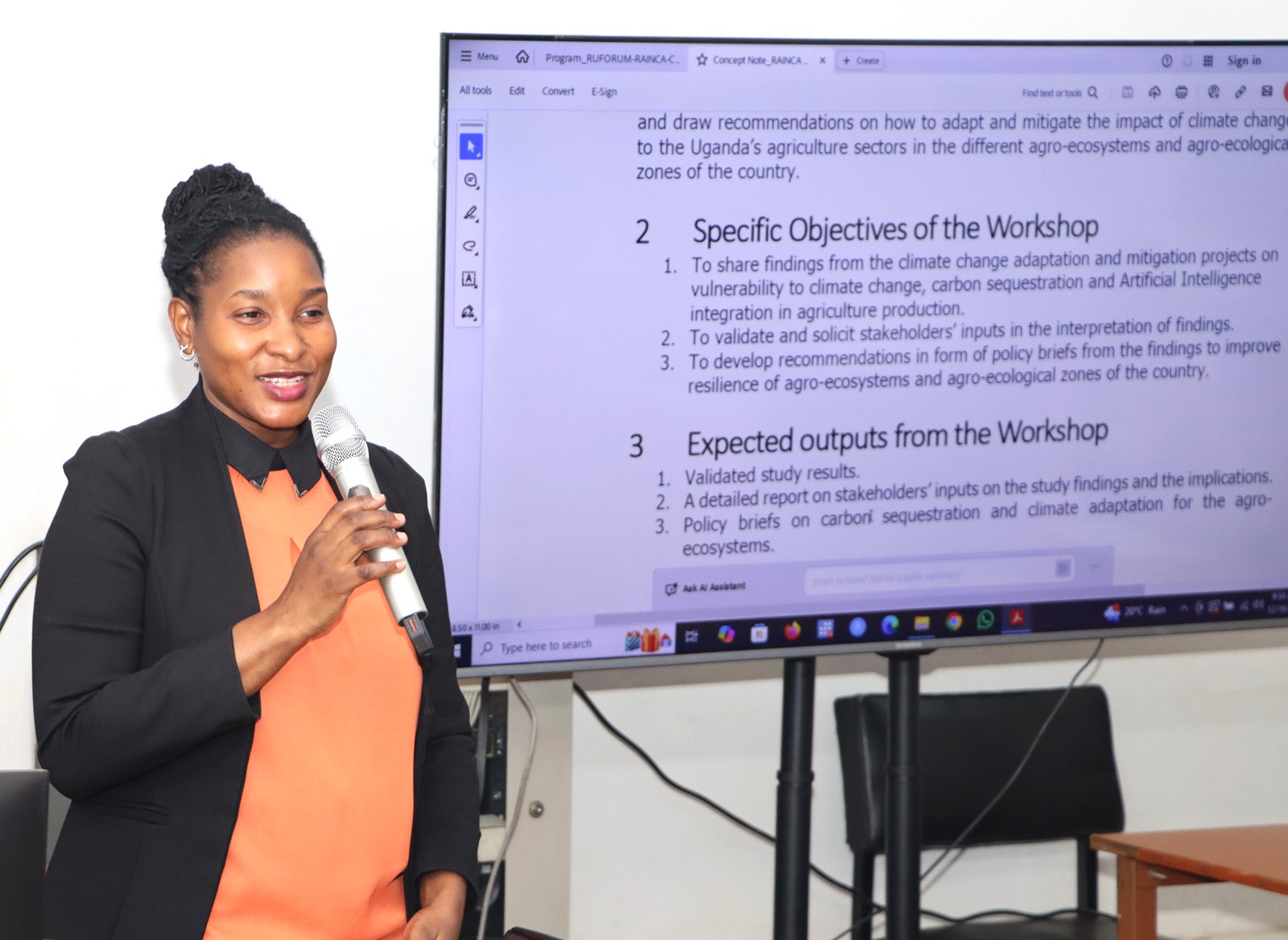
Dr. Mulinde also acknowledged the challenge of translating complex scientific concepts like artificial intelligence into locally understood terms, highlighting the importance of making the research accessible to the community. “It’s one of the challenges in academia—translating science into language that our local communities can understand,” she noted.
She concluded with an invitation to stakeholders to provide feedback on the research findings and contribute to the development of policy briefs. These documents will be used to drive climate adaptation efforts at the local level, ensuring that the research can have a lasting impact on Uganda’s agricultural resilience in the face of climate change. “By the end of the day, we expect to validate the results, address divergences, and develop policy briefs that can be shared back with your communities for further action,” Dr. Mulinde concluded.
Uganda, ranked as the 49th least ready country in terms of climate change adaptation
Uganda, ranked as the 49th least ready country in terms of climate change adaptation, faces immense challenges in securing its agricultural sector from the impacts of climate change. MAAIF Commissioner Freddie Kabango, who was present at the workshop, emphasized the pivotal role agriculture plays in Uganda’s economy, livelihoods, and national GDP. He stated, “Agriculture is at the center of Uganda’s climate change discussions because it directly impacts the livelihoods of many Ugandans. With agriculture heavily dependent on natural resources, it is highly vulnerable to climate change.”
In his presentation, Commissioner Ministry of Agriculture, Animal Industry and Fisheries Freddie Kabango discussed the diverse impacts of climate change on Uganda’s agricultural sub-sectors—crop production, livestock, and fisheries. He outlined how climate variability, manifested in extreme droughts, floods, and landslides, has already led to reduced productivity, crop destruction, and livestock losses. He further highlighted the critical importance of adaptation strategies in response to these challenges.
“Uganda is experiencing climate change variability, which is evident in extreme weather patterns. Our agriculture sector, which is primarily rain-fed, is one of the most vulnerable to these changes,” Kabango added. “Climate adaptation is crucial, and we need to protect our natural resources to secure the future of agriculture.”
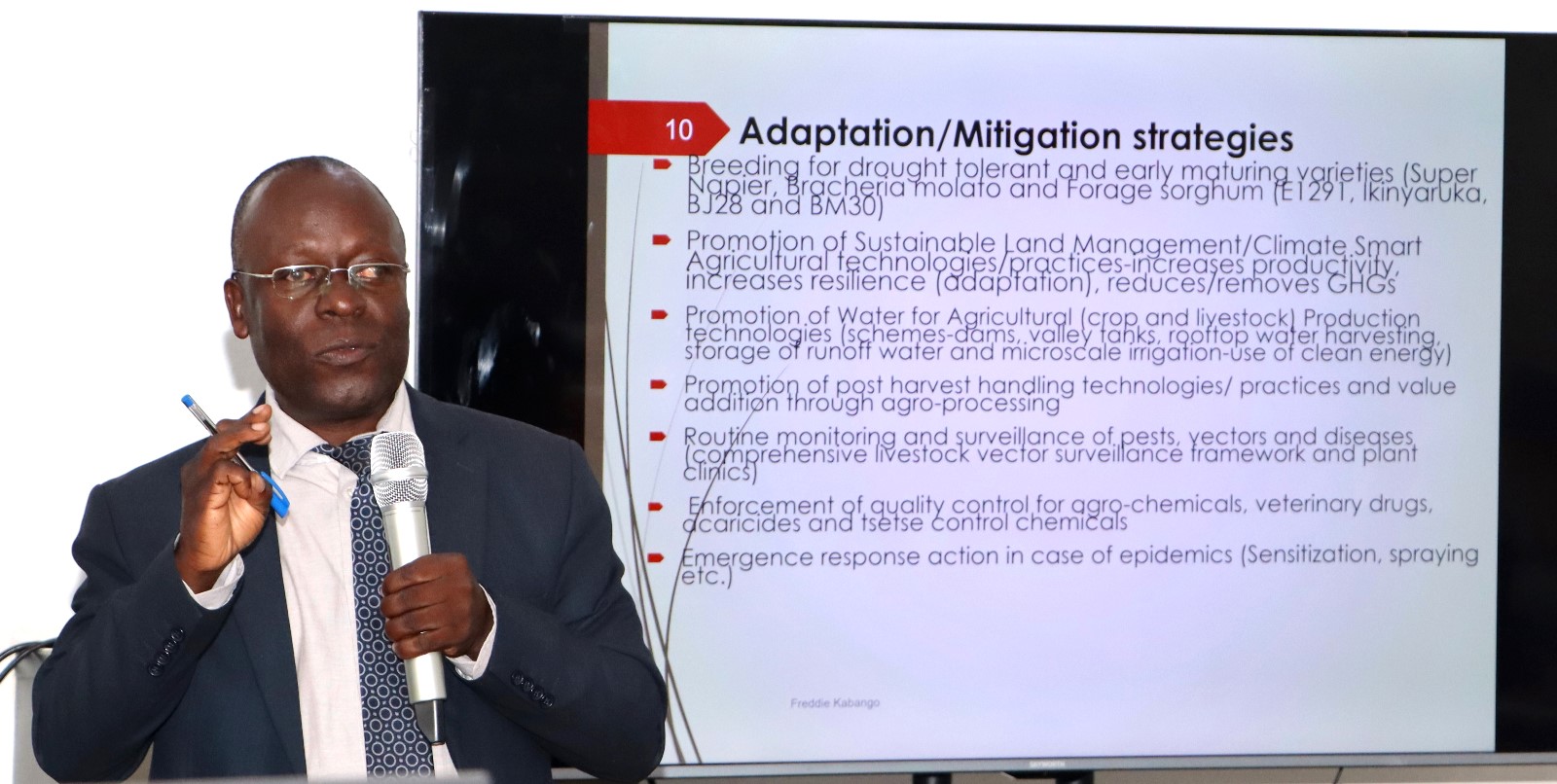
The workshop also featured a series of discussions on the strategies Uganda is pursuing to enhance climate resilience, including research and development, sustainable land management practices, and the promotion of climate-smart agricultural technologies. Kabango mentioned initiatives such as solar-powered irrigation systems and breeding for pest and disease-tolerant varieties to help mitigate the effects of climate change.
Despite Uganda’s low ranking in climate adaptation, Kabango expressed optimism that through research, policy development, and collaborative efforts, the country could strengthen its climate resilience. “While we are currently ranked as the 49th least ready country in adaptation, we are not without solutions. We are committed to increasing research and development efforts to improve the country’s preparedness,” he said.
RUFORUM Representative Hails Student AI Innovations in Predicting Crop Yields and Livestock Carbon Emissions
RUFORUM Representative Mr. Yamungu Alongo Boniface highlighted the innovative contributions of AI to climate action during his remarks at the workshop. He began by introducing RUFORUM (Regional Universities Forum for Capacity Building in Agriculture), a network of 180 universities in 40 African countries, with its headquarters based in Makerere University, Uganda. “RUFORUM started as a project funded by the Rockefeller Foundation,” he explained, recounting how it began with just 10 universities in five African countries and has since expanded significantly. “Uganda, and particularly Makerere University, has benefited greatly from the network’s growth, with many funding opportunities directed here,” he noted.
The evolution of RUFORUM was discussed, with Mr. Alongo explaining that in 2004, following the end of the Rockefeller Foundation-funded Forum for Agriculture project, the network formalized its mission as the Regional Universities Forum for Capacity Building in Agriculture. “From 10 founding universities, we now have 180 universities, covering all regions of Africa,” he shared. This growth has allowed for collaboration on numerous research projects, such as the AI for Climate Action initiative.
He described the partnership among RUFORUM, WASCAL, and Academia 2063, which secured funding from the International Development Research Centre (IDRC) to launch a research hub focused on artificial intelligence for climate action. “Makerere University applied for several grants, and though they were eligible for four, only two were granted to ensure broader continental representation,” Mr. Alongo explained.
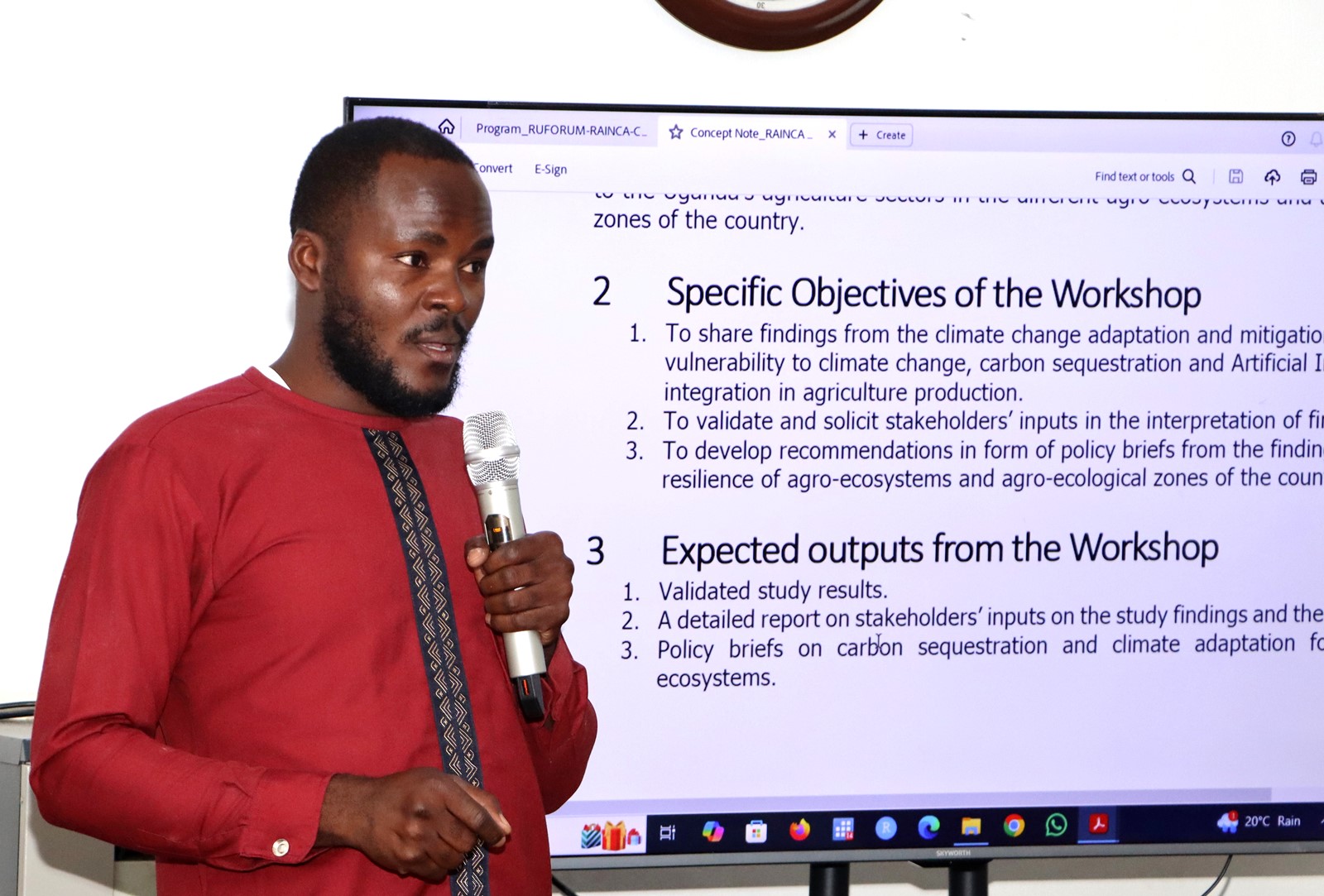
In addition to the IDRC funding, Mr. Alongo noted that RUFORUM has been involved in other projects under the Global Research Alliance (GRA), funded by the government of New Zealand, which focuses on climate change, greenhouse gas emissions, and related research. “Prof. Mkwaya and other departments at Makerere, as well as universities in Kenya and Tanzania, have also benefited from GRA funding,” he said.
Highlighting the impact of the AI projects, Mr. Alongo celebrated the success of a student who developed a crop yield prediction model that outperformed international systems. “The model was more accurate than even DISSAT, a widely recognized tool for agro-technology transfer,” he pointed out. In livestock, students developed amodel which can launch a drone to count animals and the amount of carbon stocks emitted by the animals. He stressed the importance of sharing such findings with local communities and policymakers to ensure the research is implemented effectively. “We need to make sure our findings are used by those who can take action—farmers, policymakers, and ministries,” he said.
Mr. Alongo concluded with a call to action for further collaboration. “We need to mobilize resources to bring these innovations to the field and ensure they are implemented for sustainable change,” he urged. “This workshop is just the beginning, and we must work together to make a real difference.” He also passed greetings from RUFORUM’s Executive Secretary, Prof. Patrick Okori, emphasizing his support for the project and the ongoing efforts to disseminate the findings.
Key Insights and Policy Recommendations
The workshop brought together members of academia, policy makers from government ministries and agencies and representatives from research implementing districts. Participants delved into key issues affecting the region, offering insights and recommendations that could shape future policies and research in environmental management.
Group I: Land Use and Cover
One of the major discussions in the first group focused on the changing land use patterns and their impacts on soil fertility. As communities in the region expand their agricultural activities, they face the challenge of soil degradation, which reduces crop yields. Experts emphasized the need for sustainable land management (SLM) practices to restore soil fertility and boost agricultural productivity. Agroforestry, particularly in lowland areas, was identified as a key solution, alongside wetland restoration, which has been proven to store more carbon.
Participants also suggested that promoting plant diversity in agricultural areas could help increase carbon stocks. This would contribute to the region’s efforts to combat climate change and improve environmental resilience.
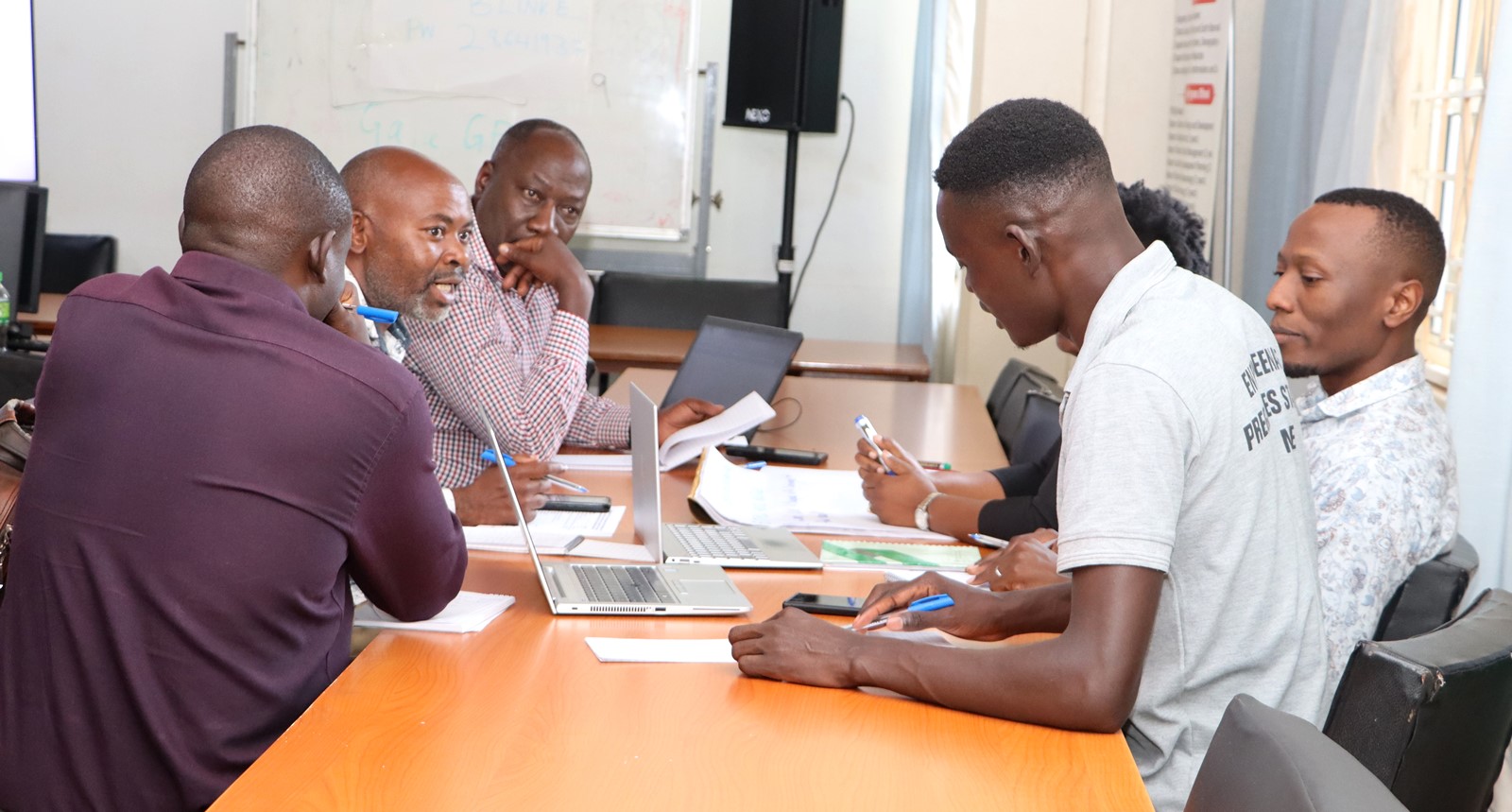
Policy recommendations from the group included prioritizing wetland restoration, promoting afforestation and forestation efforts, and enforcing stricter water management regulations. They also stressed the importance of effective urban planning and the establishment of disaster management committees at the local level to respond to climate-related challenges. Additionally, there was a call to compensate district extension workers for their role in promoting sustainable land practices.
Research topics highlighted for future manuscripts included environmental pollution, carbon stock modeling, the impacts of gender on land use and carbon stocks, and the relationship between migration, land use, and carbon storage.
Group II: Adaptation to Climate Change and Vulnerability
The second group focused on the vulnerability of communities to climate change and the need for effective adaptation strategies. A key takeaway was the importance of promoting climate-smart agriculture across all sectors, ensuring that agricultural practices are both sustainable and resilient to climate impacts. The group also called for the mainstreaming of climate change adaptation into all sector work plans and budgets, urging governments to operationalize existing policies, which have often remained underutilized.
Community sensitization was identified as a major challenge, with many local stakeholders unaware of existing climate change policies. The group recommended that efforts be made to build the capacity of both policy implementers and communities to ensure that adaptation strategies are understood and implemented effectively. Affirmative action for the most vulnerable groups, including women, the elderly, and children, was also proposed to ensure that their specific needs are addressed in climate policies.
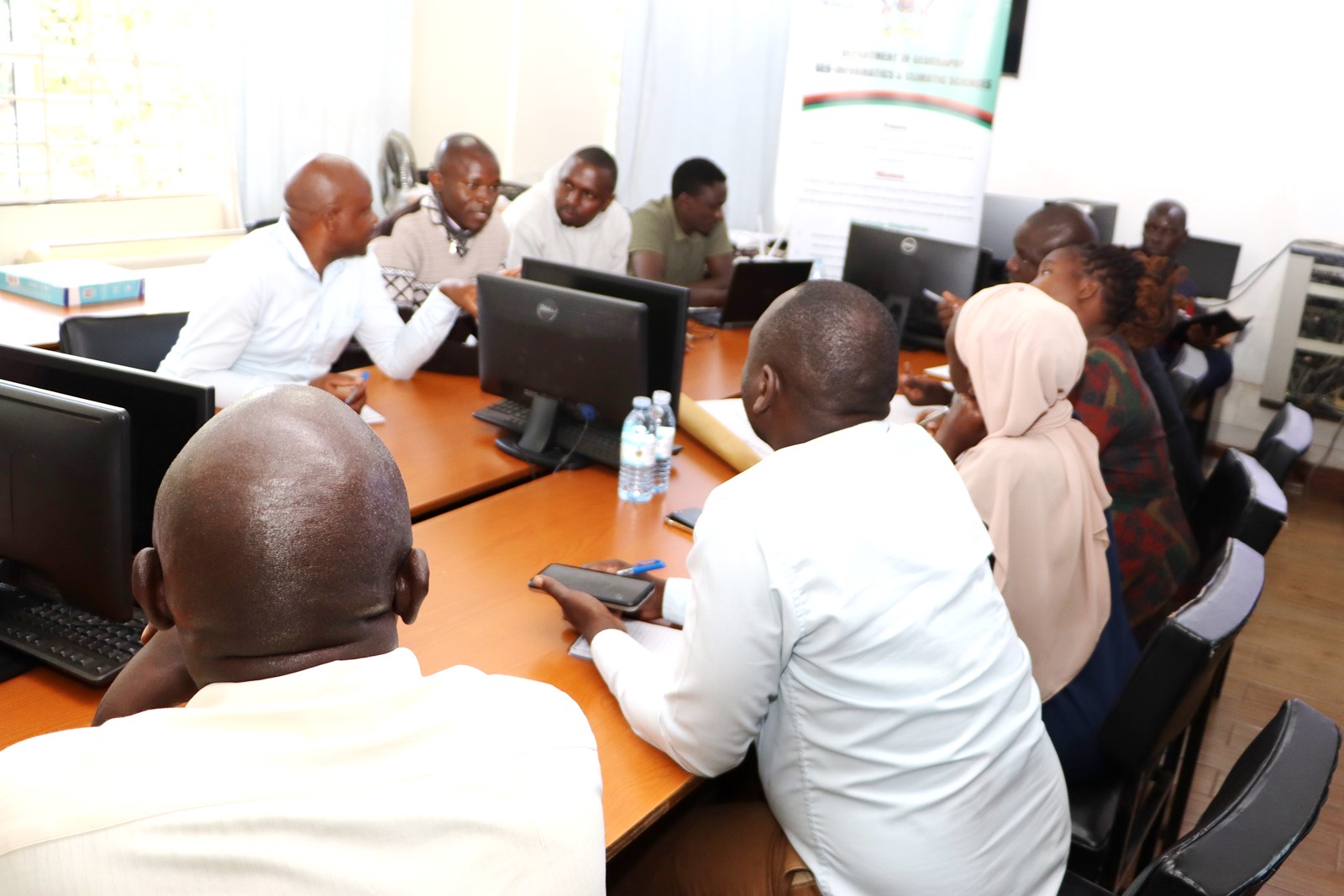
The group identified five key areas where local governments can influence policy design and implementation. These include promoting multi-stakeholder engagement, basing policies on evidence-driven research, integrating new technologies like AI into policy frameworks, and ensuring gender responsiveness and social inclusivity in national adaptation policies.
Group III: Land Management and Agricultural Practices
The third group discussed land management practices and the potential of technology to improve agricultural productivity. The group stressed the need for region-specific land management approaches, tailored to the unique challenges of different areas. They also highlighted the role of artificial intelligence (AI) in enhancing decision-making processes, particularly in precision agriculture and irrigation management. AI can provide more accurate data and predictions, helping farmers make informed decisions and optimize resource use.
Another key message was the importance of education and knowledge sharing to improve the implementation of sustainable land management practices. Participants noted that many farmers lack access to essential information, which hinders their ability to adopt better practices. Ensuring that agricultural extension services are equipped with the knowledge and tools to train farmers in new technologies was seen as a crucial step toward improving productivity.
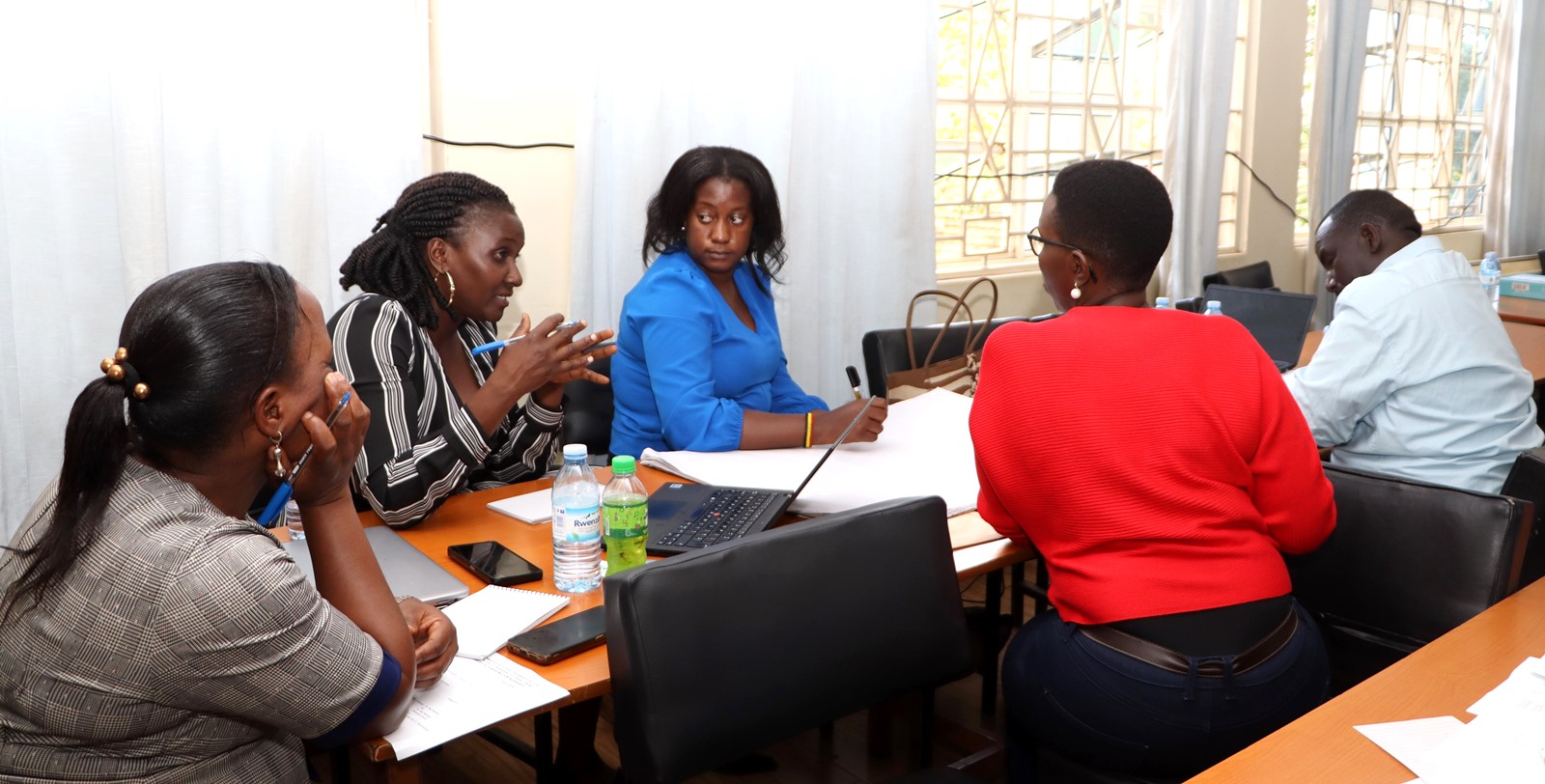
Policy recommendations from this group included enhancing the existing National Agriculture Adaptation Plans (NAPAs) to make them more region-specific and improving the integration of AI into agricultural extension services. There was also a call for the establishment of a national agriculture data infrastructure policy to support real-time data collection and forecasting, which would enable better agricultural planning and response.
Moving forward, the workshop concluded with a call to action for stakeholders to work together to implement the recommendations discussed. The importance of evidence-based policies, the integration of new technologies like AI, and the prioritization of vulnerable communities were central themes throughout the discussions. As Makerere University continues to play a critical role in addressing climate change and land management issues, the insights gained from this workshop will undoubtedly contribute to the development of more effective and sustainable policies for the future.
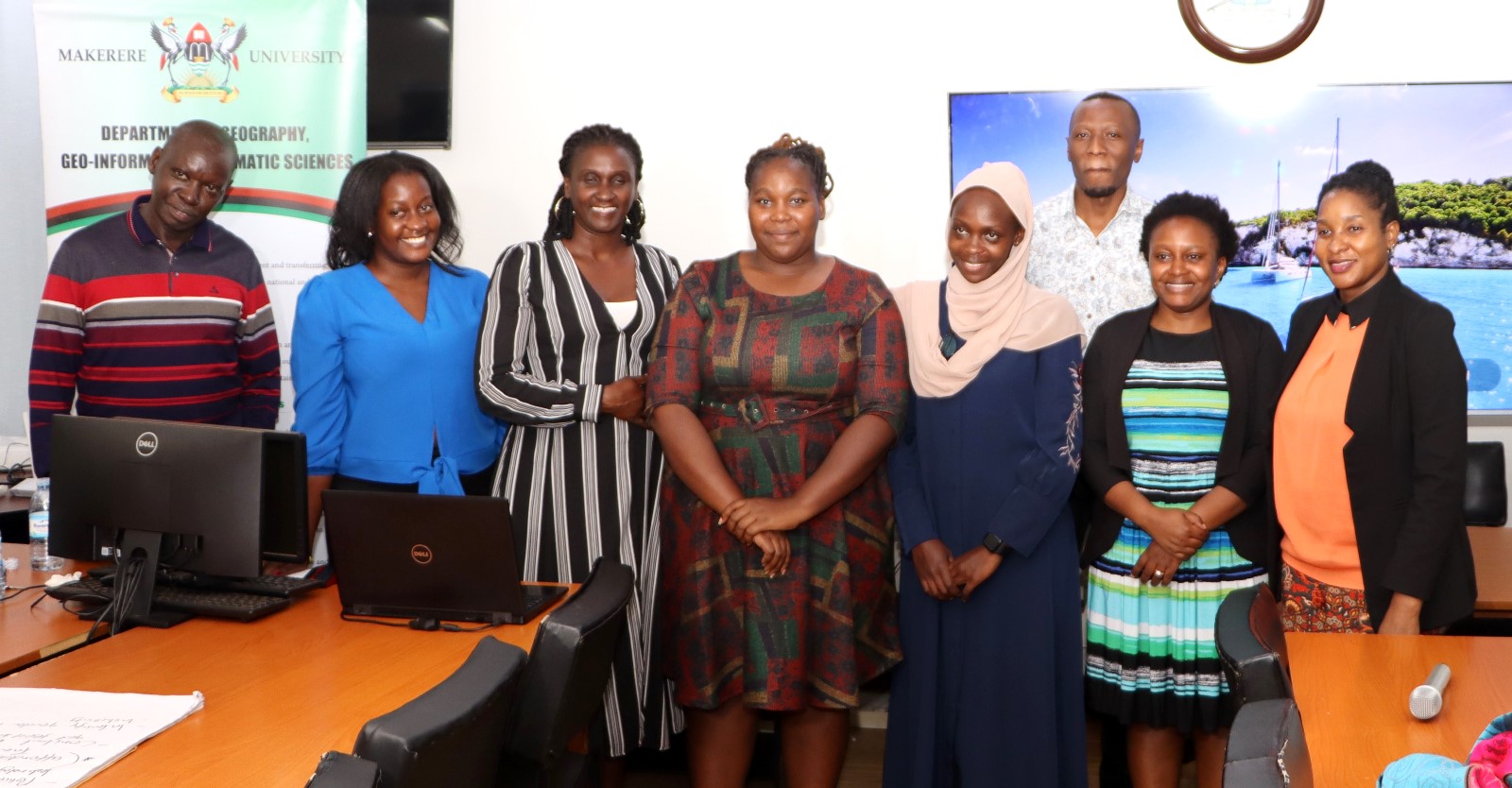
About the three Research projects
Dr. Catherine Mulinde presented three important research projects focused on addressing climate change, land use management, and agricultural productivity in Uganda.
Project 1: Carbon Stocks and Climate Change The first project, titled Effect of Changes in Land Use, Cover, and Climate on Carbon Stocks in Selected Agricultural Zones of Uganda, was led by Dr. Paul Isolo Mukwaya, with Dr. Catherine Mulinde and Dr. Geoffrey Gabiri collaborating from Makerere and Kyambogo Universities, respectively. The project’s primary objective was to assess carbon stocks in vegetation and soils in two agroecological zones, Nakapiripirit and Manafwa in Mount Elgon. The team focused on evaluating soil carbon fluxes, the impact of land cover and climate change, and the heterogeneity of environmental factors on carbon levels. Additionally, they projected future changes in carbon stocks and land use scenarios. The research team included students Elizabeth Ahumuza and Vincent Wabwire, who explored the relationship between land use, soil carbon, and meteorological drought in Karamoja. The findings from this project were shared with the community and presented at international platforms.
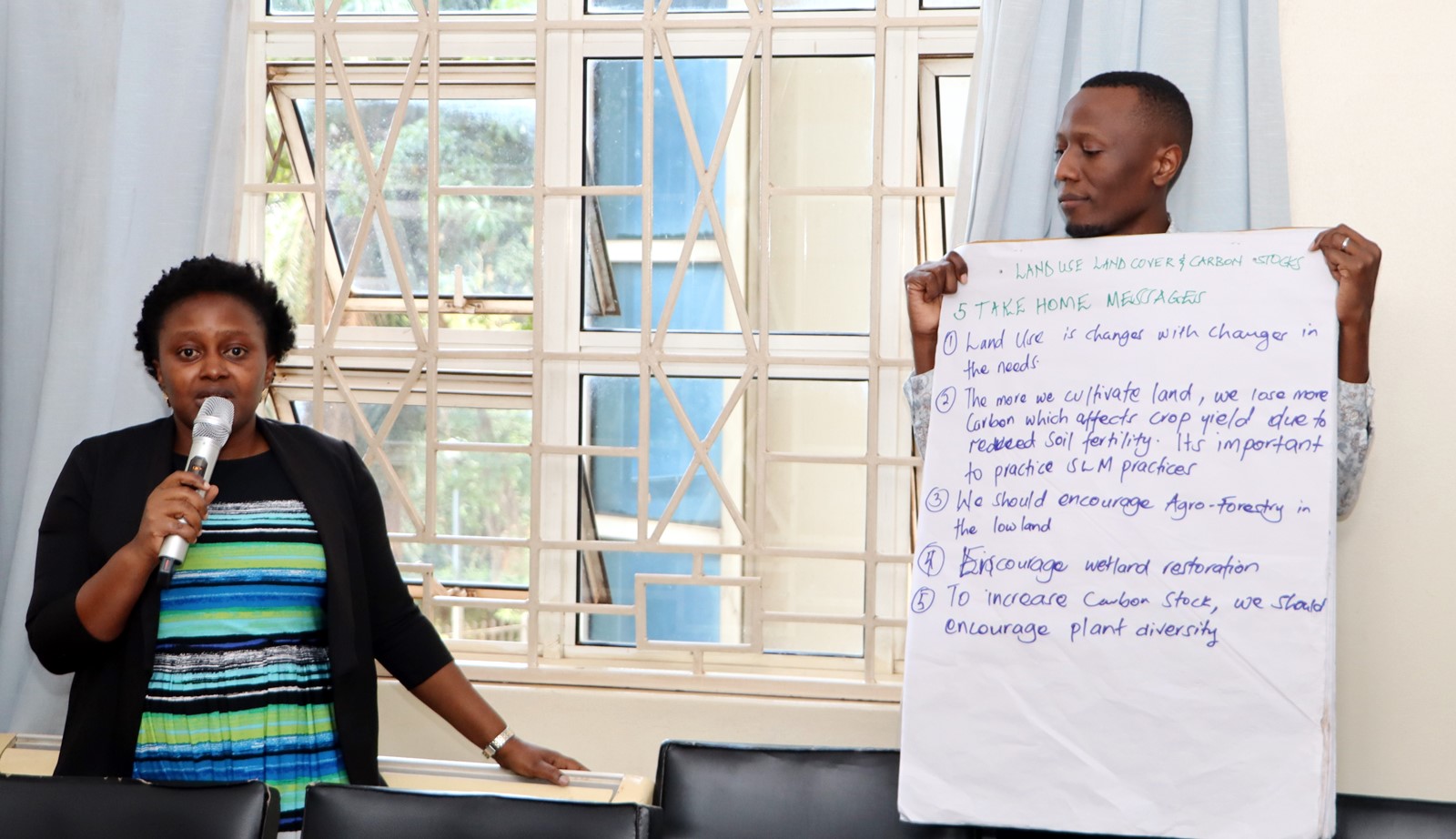
Project 2: Responsible AI for Agricultural Productivity The second project focused on the application of responsible artificial intelligence (AI) in modeling land productivity and crop yields in the face of changing climate and land use. Led by Dr. Mulinde, Dr. Paul Mukwaya, and Dr. Geoffrey Gabiri, the project aimed to explore how AI can assist smallholder farmers who are struggling with decreasing yields due to climate change. The project was conducted in the Lake Kyoga Basin, covering both the highlands (Mbale) and lowlands (Pallisa). The team used machine learning to quantify the relationship between climate change, land management practices, and crop yields, offering insights into how farmers can improve productivity. The project’s students, Irene Nekesa (Kyambogo University) and Kisakye Angela, conducted household interviews and community outreach, presenting findings at international forums, including the RUFORUM conference in Namibia. Angela’s poster was awarded the best presentation at the conference. The project highlighted the need for greater awareness and knowledge of AI in agricultural communities, as many local stakeholders struggled to interpret its potential.
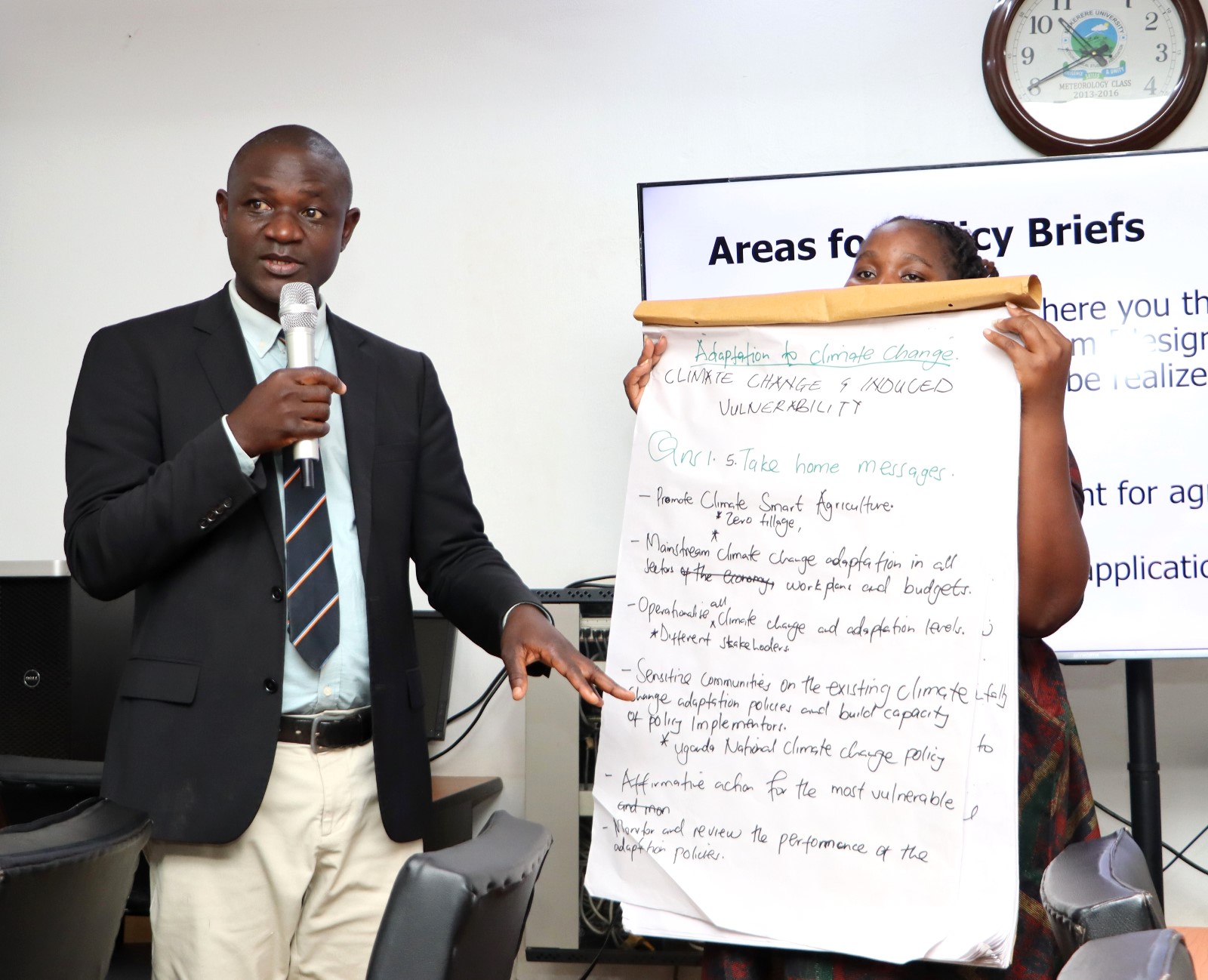
Project 3: Climate Change Adaptation in Coffee Farming Systems The third project was a postdoctoral research initiative supported by Makerere University‘s Directorate of Research and Graduate Training, focused on adaptation to climate change-induced vulnerability in coffee farming systems. Dr. Mulinde was the principal investigator, with Associate Professor Revocatus Twinomuhangi serving as the research mentor. This study, part of the CECAP program funded by the Carnegie Corporation of New York, aimed to identify the most effective adaptation practices to improve household welfare and agricultural productivity in coffee farming. The research focused on Arabica coffee in the Mount Elgon region (Kapchorwa, Bulambuli, Mbale) and Robusta coffee in the central region (Luwero, Nakaseke, Nakasongola). It identified agroforestry, soil conservation methods, and the use of organic and inorganic fertilizers as effective practices for increasing productivity. The findings were disseminated at both community and international levels, with a focus on cross-sectional surveys, farmer interviews, and data analysis. Amina Twaha, and Margaret Annet Nabirye masters student, contributed significantly to the study by examining household vulnerability to climate shocks.
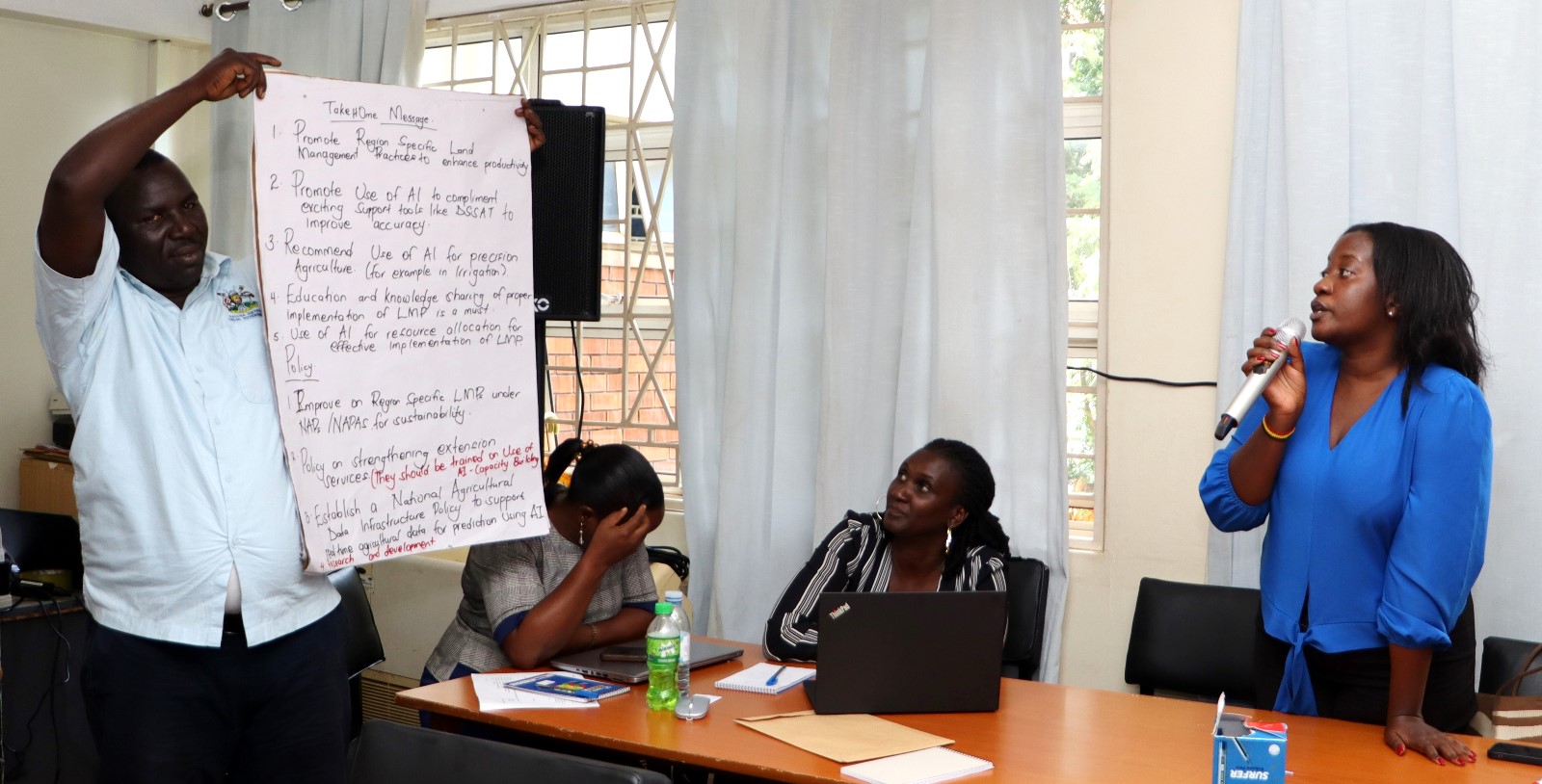
You may like
-
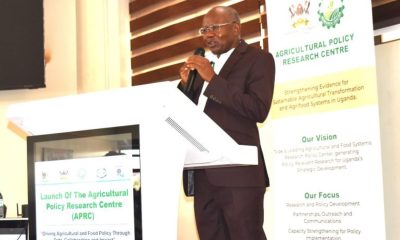

APRC Trains Graduate Students & Stakeholders in the Use of the African Agriculture Adaptation Atlas
-
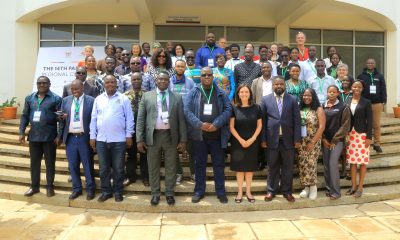

Harmonizing Africa’s Future through Musical Arts Education
-
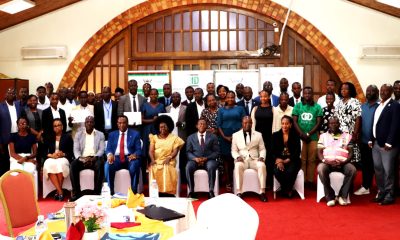

Swedish Ambassador Calls on Uganda to Lead Africa’s E-Mobility Revolution
-
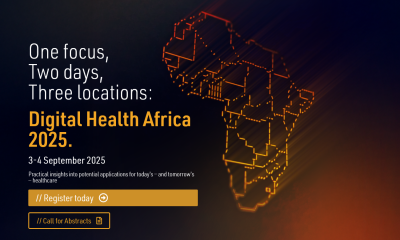

Call for Abstracts: Digital Health Africa 2025
-
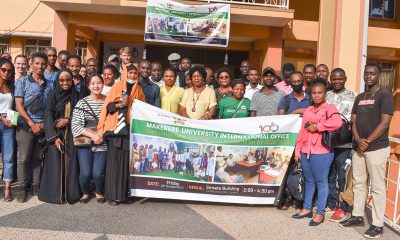

Undergraduate Admission Lists for International Applicants 2025/2026
-
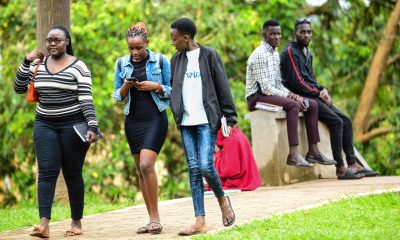

Admission Lists -Disability and District Quota Schemes 2025/26
Agriculture & Environment
APRC Trains Graduate Students & Stakeholders in the Use of the African Agriculture Adaptation Atlas
Published
12 hours agoon
July 3, 2025
The Agricultural Policy Research Centre (APRC), housed within the College of Agricultural and Environmental Sciences (CAES) at Makerere University, continues to play a pivotal role in shaping Uganda’s agricultural future through evidence-based policymaking. With a mission to ensure that agricultural policies are grounded in empirical research and data, APRC is actively investing in capacity-building initiatives that empower researchers, policymakers, and development actors.
In a significant stride toward building climate resilience in African agriculture, APRC recently organized a two-day intensive training workshop focused on the African Agriculture Adaptation Atlas (AAAA) – a state-of-the-art, web-based decision-support platform that facilitates the integration of climate data into agricultural planning and policy.

The workshop, held on Wednesday 25th and Thursday 26th June 2025 at the School of Agricultural Sciences, Makerere University, targeted two key groups: graduate students on the first day, and university faculty, government officials, and development practitioners on the second. This structure ensured tailored learning experiences for both emerging and seasoned professionals, helping to bridge the gap between academic research and real-world policy implementation.
The African Agriculture Adaptation Atlas (AAAA) is designed to provide dynamic, data-rich visualizations that support informed decision-making in agriculture and food systems across the continent. Through interactive maps and analytical tools, users can explore projected climate impacts, evaluate risks, and identify localized, climate-smart adaptation strategies.

Throughout the sessions, participants received hands-on training in a broad range of AAAA functionalities, including:
- Leveraging the Atlas for research and policy communication: Enhancing the ability of scientists and policy actors to translate complex climate data into actionable insights;
- Assessing projected climate impacts and associated agricultural risks: Essential for forward-looking planning and risk mitigation;
- Identifying climate-smart investment options, with a particular focus on the livestock sector, which is especially vulnerable to climate shocks;
- Analysing gendered vulnerabilities: Examining how climate change disproportionately affects women in agricultural communities;
- Understanding the implications of heat stress on agricultural productivity: Supporting targeted interventions to protect producers and their livelihoods;
- Estimating the economic returns of adaptation strategies: Aiding in prioritizing investments and allocating limited resources effectively.

Prof. Bernard Bashaasha, the APRC Coordinator, emphasized the importance of the training in advancing Africa’s adaptation agenda. “As climate change continues to threaten food security and disrupt livelihoods across the continent, tools like the AAAA, and the skills to use them effectively are essential. They empower decision-makers to craft policies that are adaptive, inclusive, and rooted in science,” he noted.
The workshop was coordinated by Dr. Florence Rwiza, Lecturer in the Department of Agribusiness and Natural Resource Economics at CAES.
More photos from the Training






Agriculture & Environment
NbS4Tea Project Team Makes Great Progress, Deploys Drones for Data Collection
Published
1 week agoon
June 24, 2025
****Funded by the Danish Fellowship Centre under Denmark’s Ministry of Foreign Affairs, NbS4Tea is a five-year initiative aimed at enhancing climate resilience and tea productivity in Uganda.
Launch of drones for data collection
The Nature-based Solutions for Tea (NbS4Tea) project has registered a significant milestone with the successful deployment of drones to improve environmental and agricultural data collection.
On 19th June 2025, the project team officially launched the drones at the Rwebitaba Tea Research Centre in Kyenjojo District, the project’s main research hub. The launch event included hands-on training sessions by Mr. Timothy Mutungi, a certified Remote Sensing Drone Pilot. Mr. Mutungi provided detailed instruction on drone operation, safety procedures, and data acquisition techniques specifically tailored to the project’s goals. The training was attended the core NbS4Tea researchers as well as students supported by the project.

By utilizing drone technology, the team will be able to capture high-resolution imagery and gather critical environmental data across vast tea-growing areas. This will enable more precise assessments of biodiversity, soil health, water use, and overall ecosystem services. The valuable insights generated will guide the development of sustainable, nature-based agricultural practices with the potential for widespread adoption throughout the tea industry.
About the NbS4Tea Project
NbS4Tea is a five-year initiative aimed at enhancing climate resilience and tea productivity in Uganda. Funded by the Danish Fellowship Centre under Denmark’s Ministry of Foreign Affairs and led by Dr Emmanuel Arthur from Aarhus University, the project is being implemented through a consortium of Ugandan and Danish institutions namely: Makerere University, the National Agricultural Research Organization (NARO), Uganda, Uganda Tea Association, Aarhus University, Denmark, and Kick-start International.

The primary objective of the project is to sustainably close the tea yield gap in Uganda by developing research-driven, nature-based solutions that enhance the climate resilience of tea production systems. This involves identifying climate-resilient tea varieties, integrating tea prunings and banana by-products, utilizing nitrogen-fixing agroforestry trees, and improving irrigation management. The approach emphasizes socio-economic feasibility, capacity building in research, and a market-oriented, multi-stakeholder collaboration to ensure both environmental and economic sustainability.
At Makerere University, the project is coordinated by Dr Alex Nimusiima from the Department of Geography, Geo-Informatics and Climatic Sciences at CAES. Other Project members are; Dr Grace Nakabonge from the Department of Forestry, Biodiversity and Tourism; Dr Prossy Nakawuka from the Department of Agricultural and Bio-systems Engineering; Dr Twaha Ali Basamba from the Department of Agricultural Production; and Dr Alice Turinawe from the Department of Agribusiness and Natural Resource Economics.

Specific objectives
- Identify and quantify climate change impacts on tea yield and quality based on historical and newly obtained data and novel data mining methods.
- Screen, select and recommend tea varieties adapted to abiotic (drought and heat) and biotic stresses (diseases and pests).
- Develop new knowledge on the potential of local waste biomass (tea prunings, banana pseudostems and peels) as soil amendments- mulch, compost, biochar, to recycle nutrients, improve soil fertility, increase carbon sequestration and alleviate drought.
- Reveal NbS through agroforestry combined with organic mulch, irrigation and resilient tea varieties that increase biodiversity and tea yield.
- Innovate new methods to enhance tea production under climate change through rainwater harvest and climate-smart irrigation infrastructure.
- Empower vulnerable groups (women, youth, and people with disabilities) in tea production and processing to ensure multi-actor involvement and socio-economic benefit outreach of the proposed NbS in tea cultivation and production.
- Identify export market strategies for NbS tea products, aligned with consumer preferences.

Progress thus far
Launched in January 2024, the project, organized in five work packages, has registered significant progress. Each of the work packages listed below supports one PhD student and one Masters’ student. The PhD students are: i) Mr. Adiga Hassan from the Department of Geography, Geo-Informatics and Climatic Sciences at CAES conducting research under work package 1; ii) Ms. Sarah Namayengo from the Department of Forestry, Biodiversity and Tourism conducting research under work package 2; Ms. Vivian Namutebi from the Department of Soil Science and Land Use Management undertaking research on work package 3; Mr. Keneth Chelimo from the Department of Agricultural and Biosystems Engineering conducting his research under work package 4; and Ms. Moreen Asasira from the Department of Agribusiness and Natural Resource Economics focusing on work package 5. The Masters students are: i) Ms. Evelyn Katasi from the Department of Environmental Management at CAES (work package 1), Mr. Vereriano Turyahebwa from Department of Forestry, Biodiversity and Tourism (work package 2); Mr. Ben Okurut from the Department of Soil Science and Land Use Management (work package 3); Mr. Augustine Okot from the Department of Agricultural and Biosystems Engineering (work package 4); and Mr. Augustine Kigozi from the Department of Agribusiness and Natural Resource Economics (work package 5)

Work packages and achievements registered
Work Package 1: Climate change impacts on tea yield and quality – Headed by Dr. Alex Nimusiima
This work package centres on the analysis of historical and projected climate conditions in the study area. It examines how current climate patterns influence tea production, as well as the potential effects of future climate change on tea yield and quality.
Progress
i) A household survey assessing the socio-economic status of tea farmers and the effects of climate variability on their livelihoods has been completed.
ii) The collected data has been cleaned, and the Masters student supported under this work package is currently writing her thesis based on the survey findings.
iii) A historical climate analysis of the study area has been conducted by the PhD student, who is now preparing a manuscript.

Work Package 2: Screening & selecting tea genotypes for resilience to abiotic and biotic stresses – Headed by Assoc. Prof. Grace Nakabonge
This work package focuses on evaluating existing tea genotypes for their resistance to pests and diseases, using chlorophyll fluorescence imaging as a diagnostic tool.
Progress
i) A screen house has been constructed to serve as the experimental site.
ii) Germplasm from two tea varieties is currently being cultivated in the screen house in preparation for the upcoming experiments.
iii) A drone has been acquired to assist in data collection for this work package.

Work Package 3: Evaluation of NbS for climate resilience, higher yield and biodiversity- Headed by Assoc. Prof. Twaha Ali Basamba
This focuses on the characterization of mulch and biochar derived from tea prunings to improve soil health. It also aims to quantify the added value of Nature-based Solutions (NbS) in enhancing tea productivity, promoting climate resilience, and supporting biodiversity.
Progress
- So far, Biochar has been produced from tea prunings and characterized.
- The Masters student supported under this work package is writing his thesis on the results of biochar characterization.

Work Package 4: Innovating smart and scalable irrigation technology for improved tea production- Headed by Dr. Prossie Nakawuka
This work package aims to develop and evaluate smart, scalable irrigation solutions to boost tea production. It focuses on assessing how irrigation impacts tea yield and quality, measuring water use efficiency, and analyzing the economic returns of irrigation practices. Additionally, it explores deficit irrigation and climate-resilient strategies to ensure sustainable tea farming in changing environmental conditions.
Progress
- The irrigation infrastructure is now in place and fully operational at Rwebitaba Tea Research Centre in Kyenjojo District.
- The experimental plots for irrigation experiments are already in place with water pipes.

Work package 5: Socio-economic assessment of tea-agroforestry and selected tea varieties – Headed by Dr. Alice Turinawe
This work package emphasizes co-creation within multi-stakeholder innovation networks to evaluate the economic feasibility and market access of tea agroforestry systems. It also focuses on promoting gender balance and understanding consumer valuation of Nature-based Solutions (NbS) tea from Uganda.
Progress
To date, two co-creation workshops have been successfully conducted and the Masters student under this work package is currently analyzing the workshop results as part of their research.

Expected outputs and outcomes
- Increased tea production, productivity, and biodiversity through the adoption of NbS.
- Increased research and technical capacity of Makerere and R-ZARDI.
- Holistic stakeholder insight on economic feasibility, consumer acceptance and market access strategies, especially for vulnerable groups in the tea value chain.
- Increased job prospects for youth and women in tea production sub-sectors.
- Improved social status and increased incomes of tea farmers, traders, and exporters.
- Improved economic and environmental quality by recycling biomass waste into value-added products dedicated to soil enhancement.
- 4+ high-yielding tea genotypes adapted to drought and heat, diseases and pests.
- 15+ scientific articles, conference presentations.
- Five PhDs and Five MSc degrees.
- Market access assessment and empowerment.

Details on the project: https://news.mak.ac.ug/2024/01/new-caes-project-to-improve-tea-production-in-uganda/
More photos from the event



Agriculture & Environment
New Mak-CAES Project to Spur Green Growth in East Africa
Published
3 weeks agoon
June 13, 2025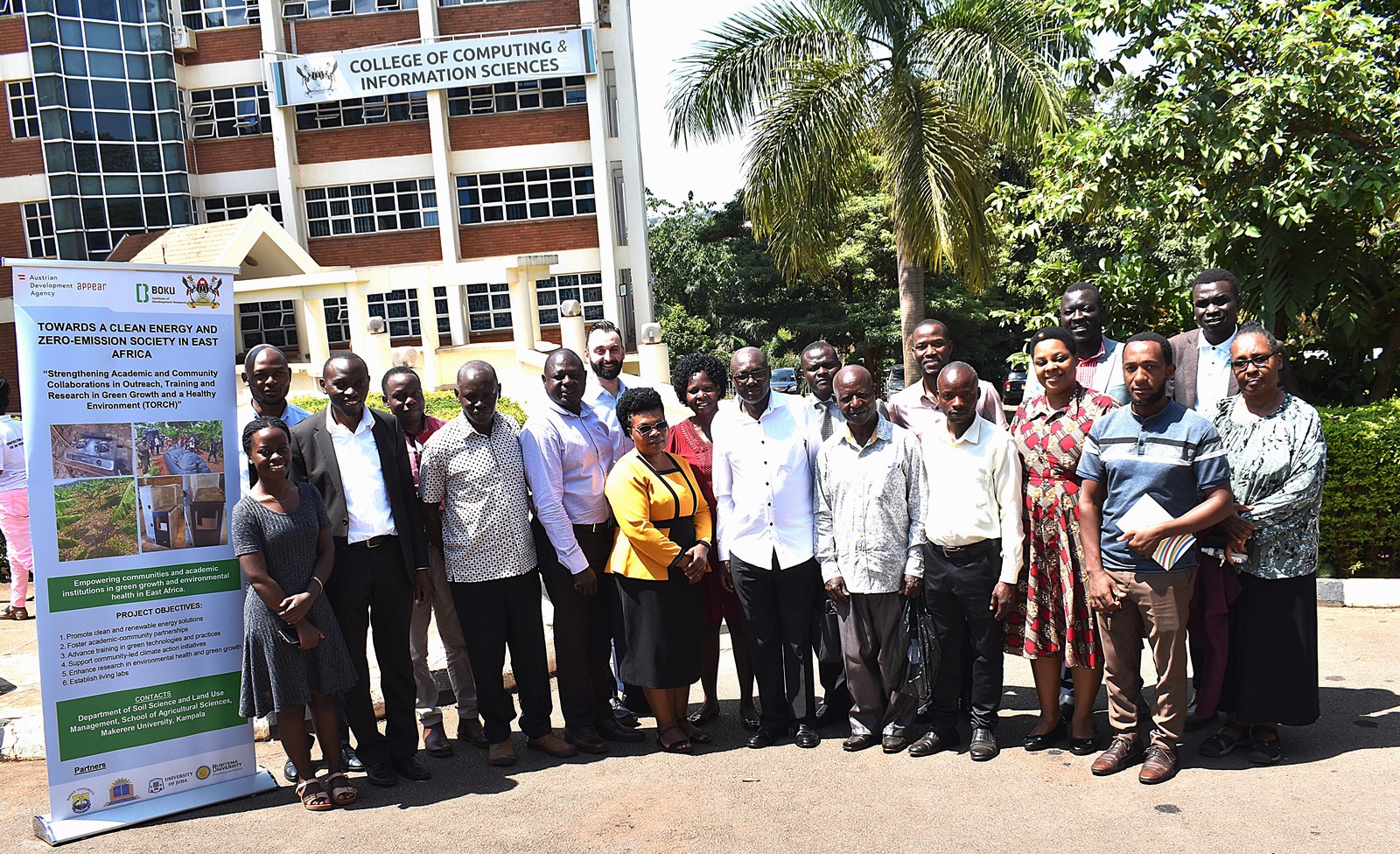
Makerere University, through its Department of Soil Science and Land Use Management at the College of Agricultural and Environmental Sciences (CAES), has launched a new project aimed at fostering green growth and promoting sustainable development across East Africa. This initiative aligns with global efforts to combat climate change and create eco-friendly, low-carbon communities through collaborative research, education, and technology.
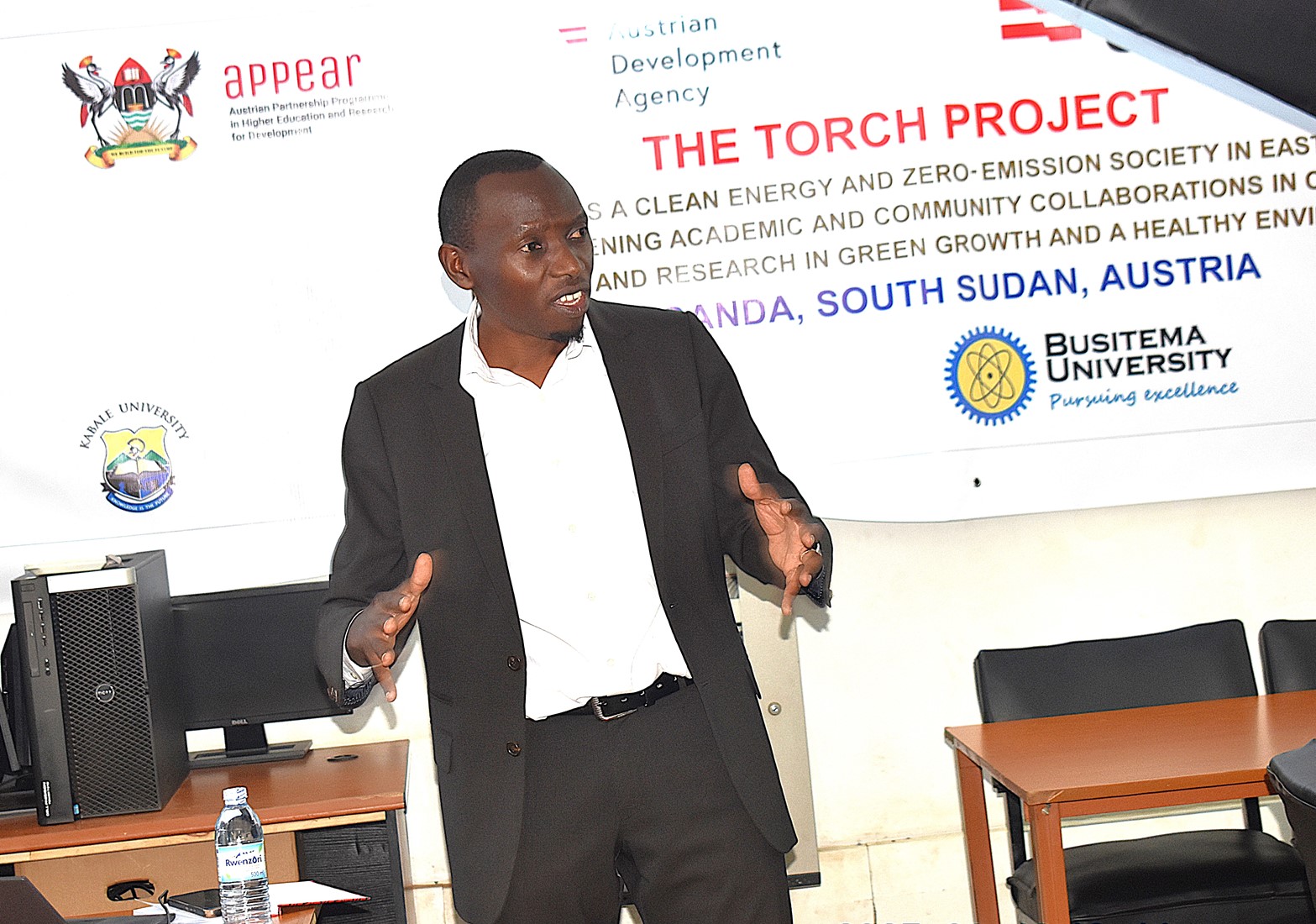
Introducing the TORCH Project: Towards a Clean Energy and Zero-Emission Society
The two-year project, code-named TORCH (Towards a Clean Energy and Zero-emission Society in East Africa), seeks to strengthen cooperation between academia and local communities to promote green growth and environmental sustainability. Funded by the OeAD-GmbH under the Austrian Partnership Programme in Higher Education Research for Development (APPEAR), TORCH focuses on clean energy solutions, carbon emission reduction, and community empowerment through training, research, and co-creation of green technologies.
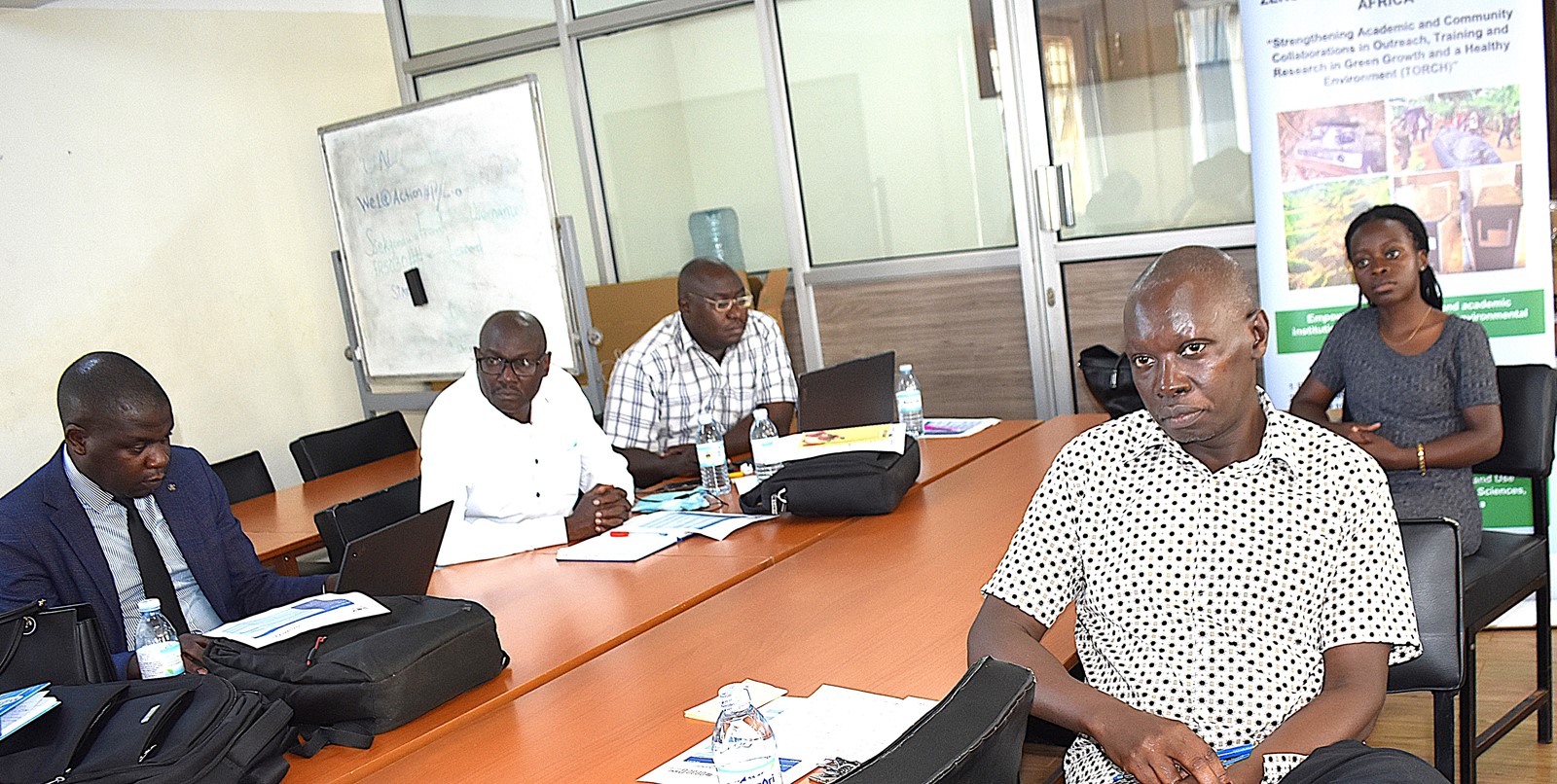
Officially launched by the Principal of CAES, represented by Dr. Paul Mukwaya, Head of the Department of Geography, Geo-Informatics and Climatic Sciences at Makerere University, TORCH builds upon existing East African government policies. The project will implement the innovative concept of living labs, where universities, communities, and stakeholders co-design, co-create, and co-produce affordable, reliable green technologies tailored to local needs.
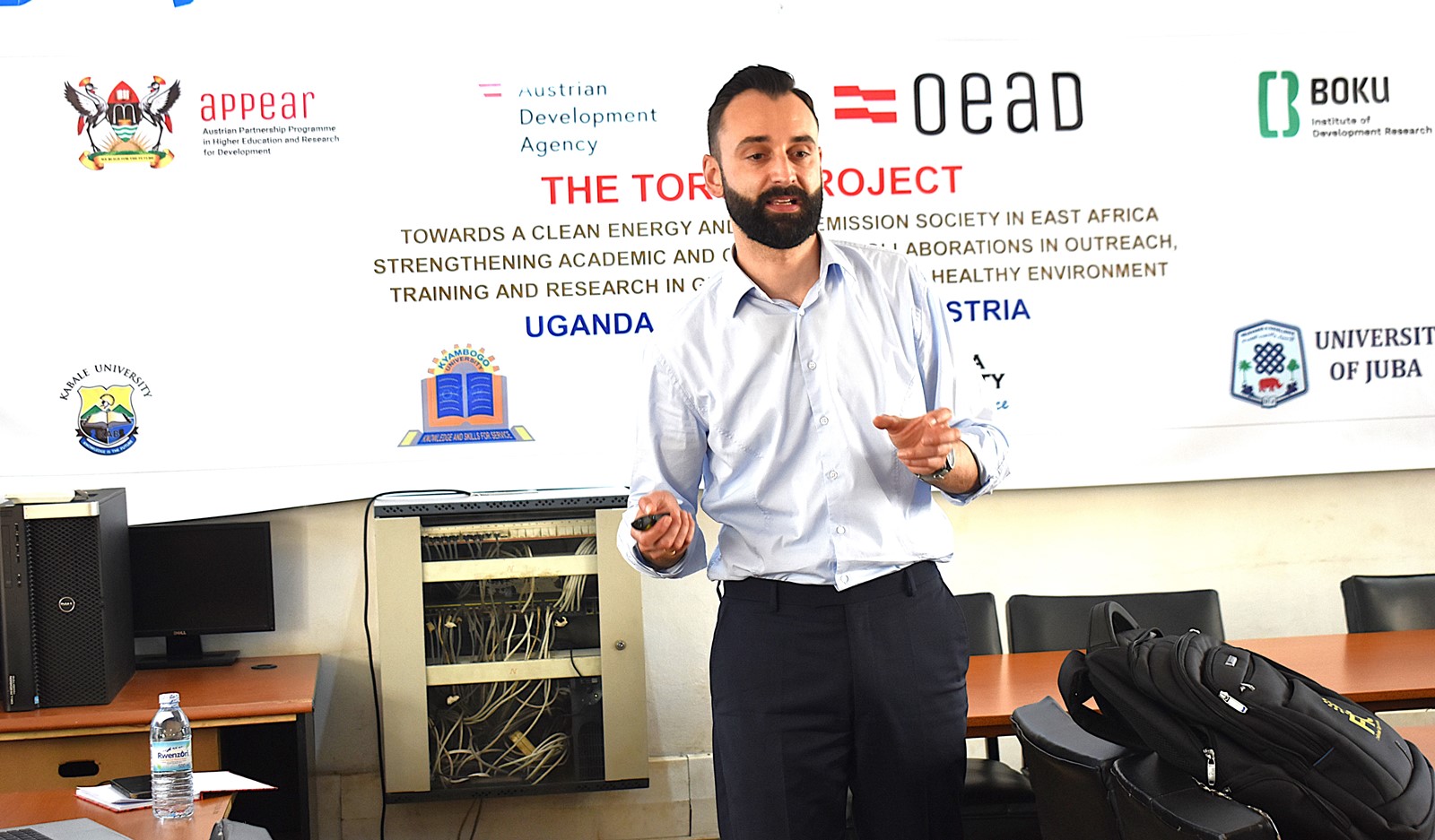
Key Objectives and Activities
TORCH aims to:
- Enhance teaching on green growth by integrating principles into selected academic curricula.
- Establish three living laboratories in Central, South Western, and Eastern Uganda to boost co-creation on energy efficiency and low-carbon emissions.
- Increase human capacity through short courses, field research, and training.
- Empower women in science and technology.
- Promote novel green technologies and support policy transformation.
- Strengthen partnerships among universities in East Africa.
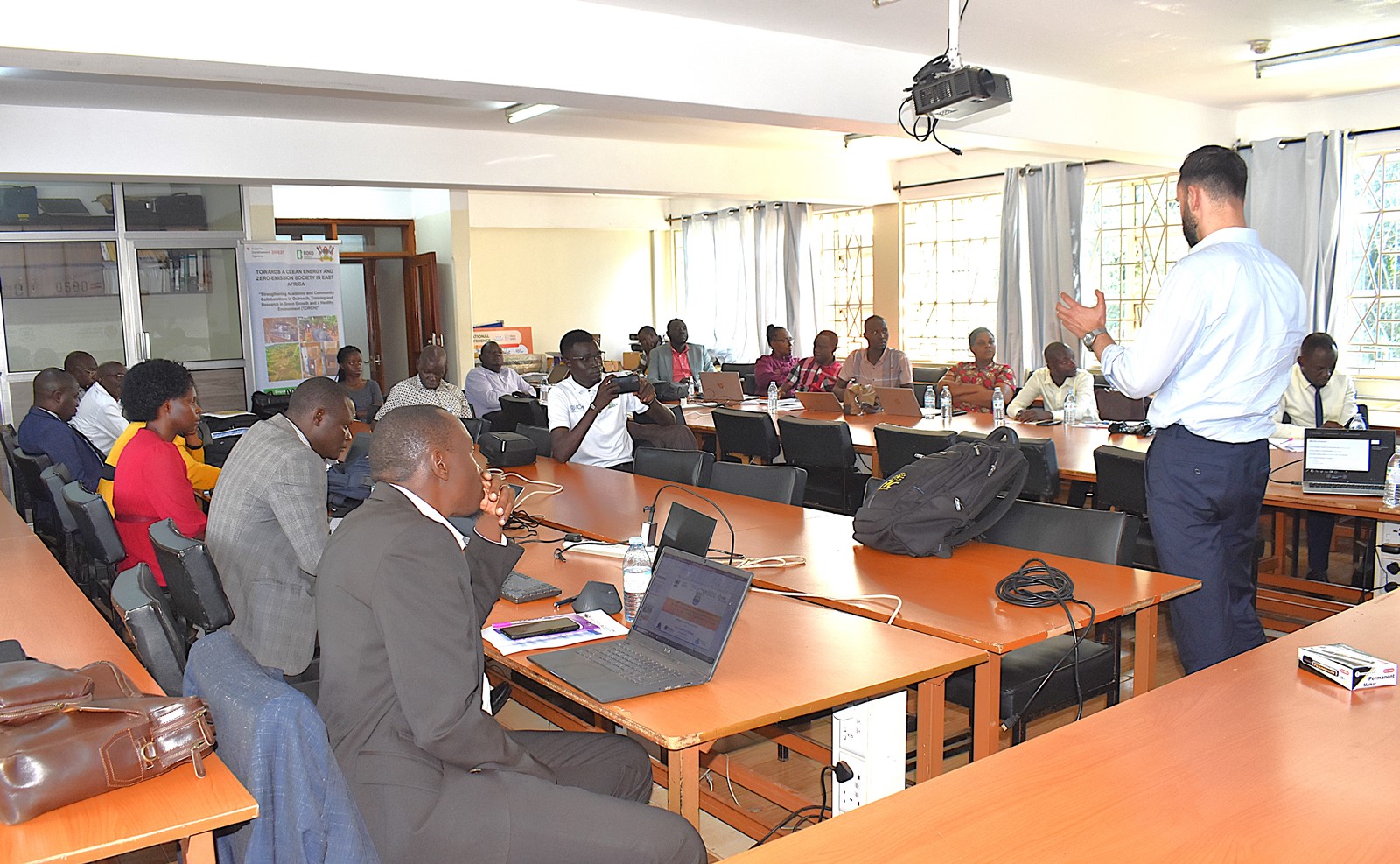
These activities directly contribute to achieving several Sustainable Development Goals (SDGs), including SDGs 4 (Quality Education), 5 (Gender Equality), 6 (Clean Water and Sanitation), 7 (Affordable and Clean Energy), 12 (Responsible Consumption and Production), and 13 (Climate Action), while also reducing health risks and conserving the environment.
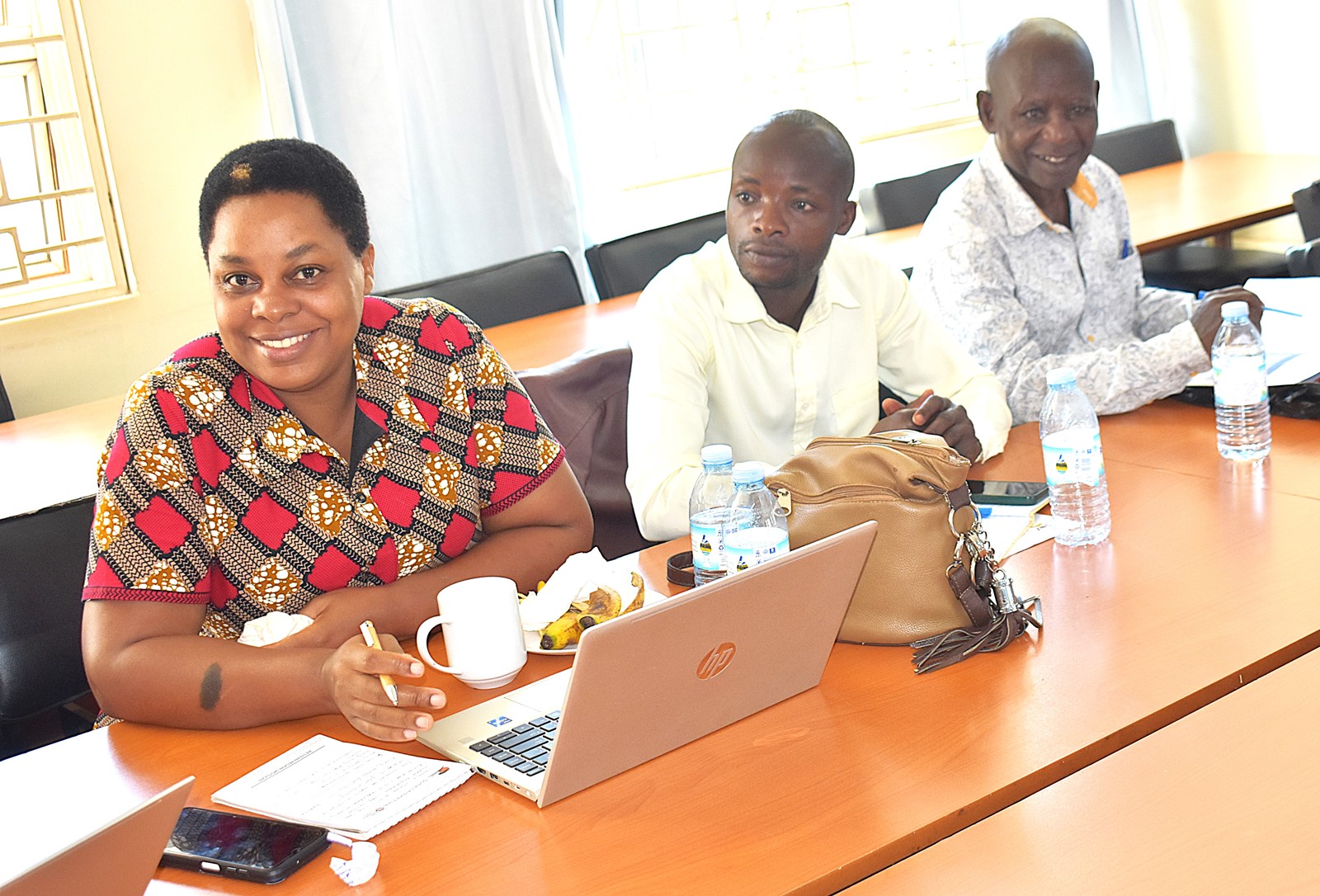
Leadership and Partner Institutions
The overall project coordinator is Dr. Patrick Musinguzi, Lecturer in the Department of Soil Science and Land Use Management at Makerere University. TORCH involves several partner institutions, including: Makerere University (Uganda), University of Natural Resources and Life Sciences, Vienna (Austria), Kabale University (Uganda), Busitema University (Uganda), Kyambogo University (Uganda), and the University of Juba (South Sudan).

Highlights of the Launch Ceremony
During the launch ceremony held in the GIS Lab at Makerere University, and attended by representatives from the partner institutions, Dr. Musinguzi presented an overview of TORCH, outlining key strategies for implementation and expected outcomes. Central to the project’s strategy is the integration of green growth principles into Makerere University’s academic curriculum. This will be formally proposed to the University Management for adoption. Additionally, the project aims to strengthen the university’s research agenda in this critical area. This will involve supporting faculty and student-led research projects and generation of evidence-based insights on green growth to influence policy at both local and national levels. There are also plans to establish three living labs in Central, South Western, and Eastern Uganda to serve as practical hubs for advancing green growth.
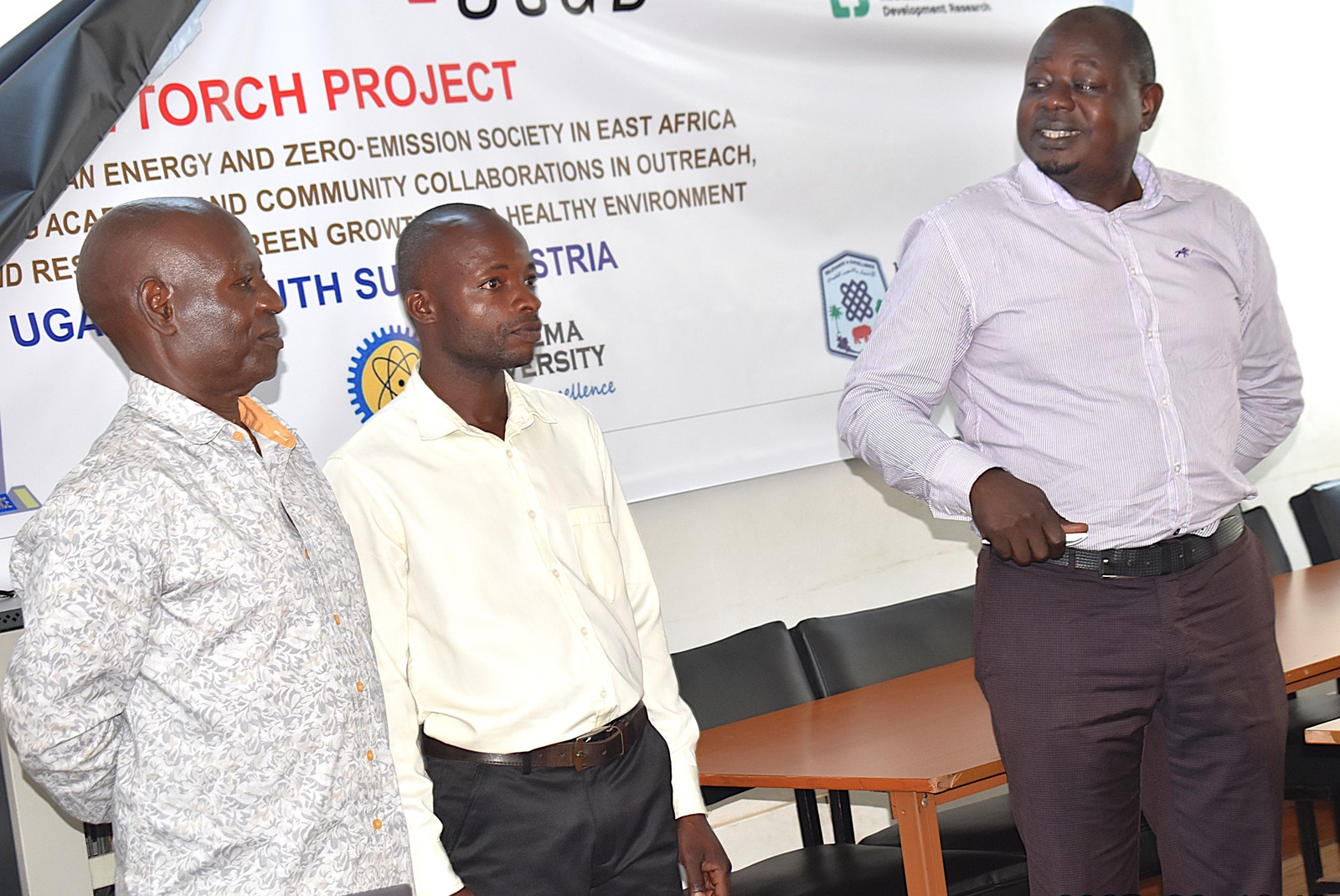
Expert Insights on Community Engagement
In his presentation, Mr. Andreas Bauer from the University of Natural Resources and Life Sciences, Vienna provided valuable insights into the critical role that living labs play in promoting sustainable, green growth. Highlighting practical examples and innovative approaches, Mr. Andreas Bauer emphasized how living labs serve as dynamic platforms for collaboration between researchers, industry stakeholders, and local communities, enabling real-world experimentation and the development of eco-friendly solutions that drive environmental and economic progress.
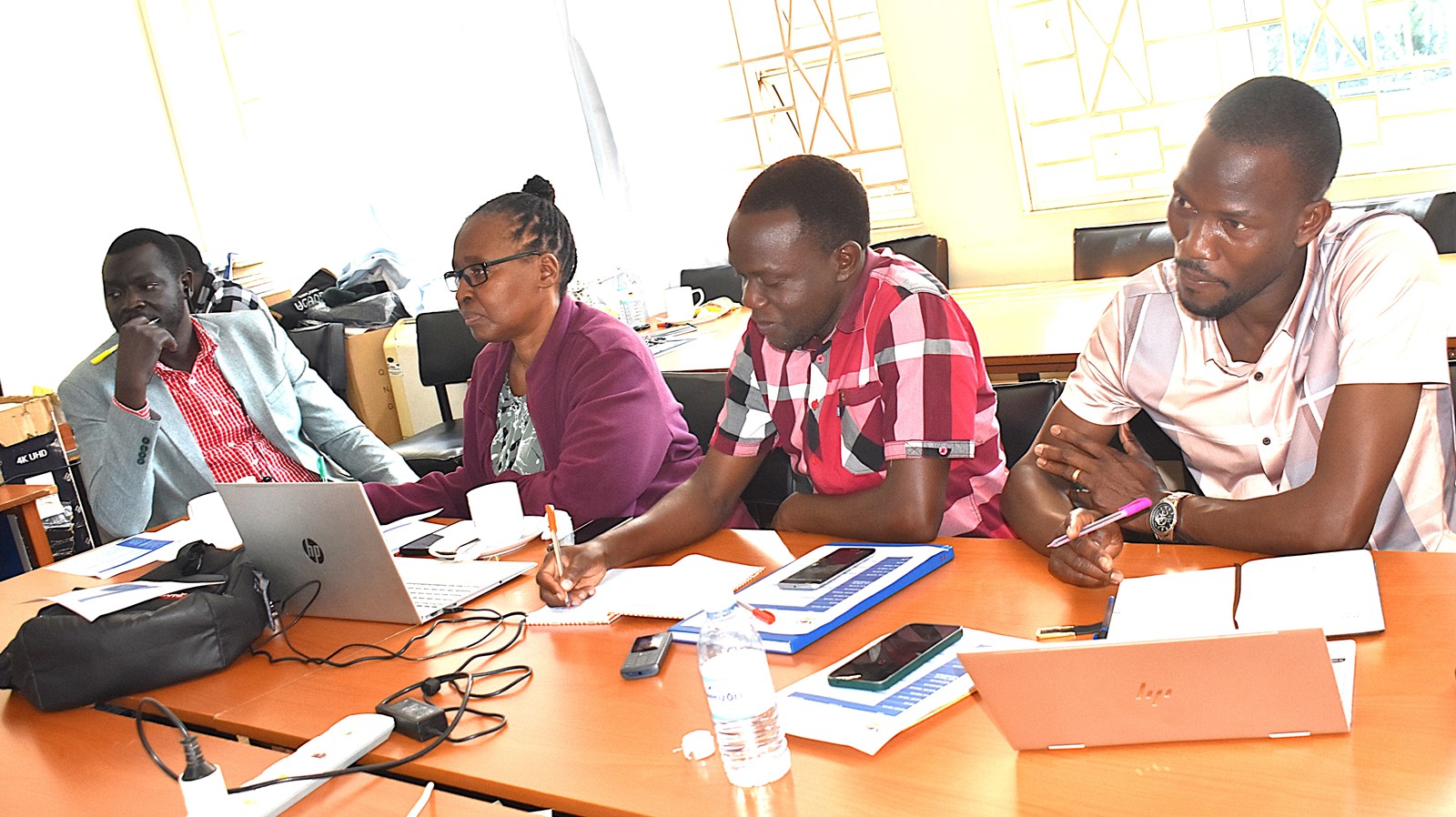
To emphasize the importance of collaboration between local communities and the academia, Mr. Kayanja Susane, a farmer from Kawumu Village in Luweero District, explained that, with guidance and support from the project team, he learned to produce biogas from animal waste -a reliable source of energy that reduces dependence on traditional fuels, subsequently minimizing environmental degradation.
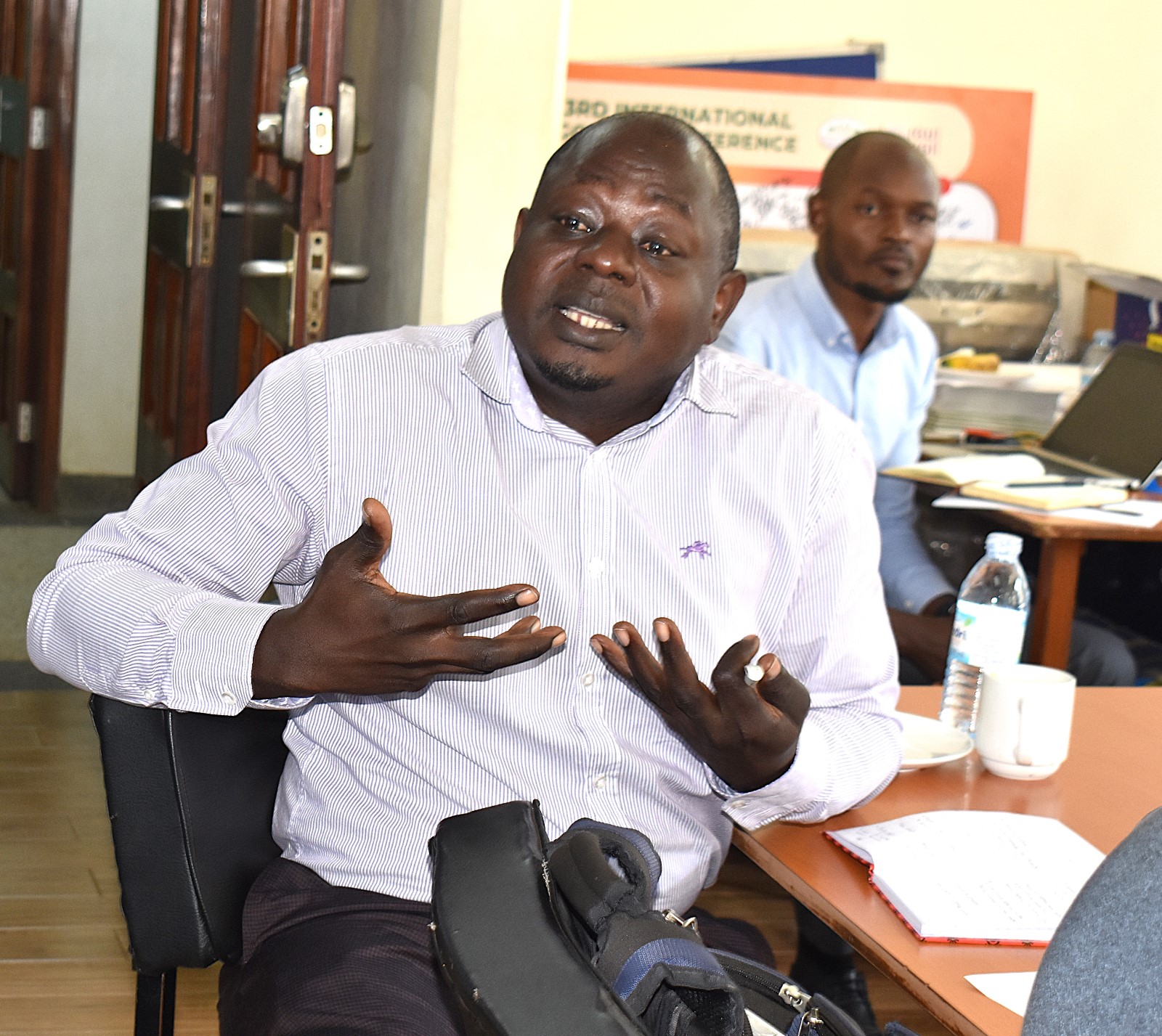
Research Focus
As part of the strategy to guide implementation, the project team brainstormed potential ecological and social indicators of low emissions in homesteads, and proposed several research areas to support green growth. Proposed research areas include:
- Life cycle analysis
- Circular economy practices within homesteads
- Gender integration and the intersection of gender with green growth
- The role of livestock in promoting green growth
- Evaluating the impact of interventions on total emissions
- Barriers to adopting green innovations
- The use of indigenous knowledge in promoting green growth
Addressing the participants, the Principal of the College of Agricultural and Environmental Sciences (CAES), represented by Dr. Paul Mukwaya, Head of the Department of Geography, Geo-Informatics, and Climatic Sciences at Makerere University, commended the project as a timely initiative aligned with the University’s research agenda. He underscored the importance of collaborating with other stakeholders, noting that similar projects have been conducted within and outside Makerere. Dr. Mukwaya called for the adoption of the theory of change framework to ensure the project delivers measurable, sustainable impacts that extend beyond policy briefs and gender mainstreaming, ultimately contributing to lasting green transformation in the region. He expressed appreciation to the project funders for their unwavering support to Makerere University.
Trending
-

 General6 days ago
General6 days agoMature Age Scheme Exam Results for 2025/2026
-

 General1 week ago
General1 week agoFreshers’ Joining Instructions 2025/2026
-

 General2 days ago
General2 days agoUndergraduate Admission List Self Sponsorship Scheme 2025/2026
-

 General2 weeks ago
General2 weeks agoMastercard Foundation Board pays its inaugural visit to Makerere University
-

 General1 week ago
General1 week agoUVCF Makes Case for HEAC Programme
